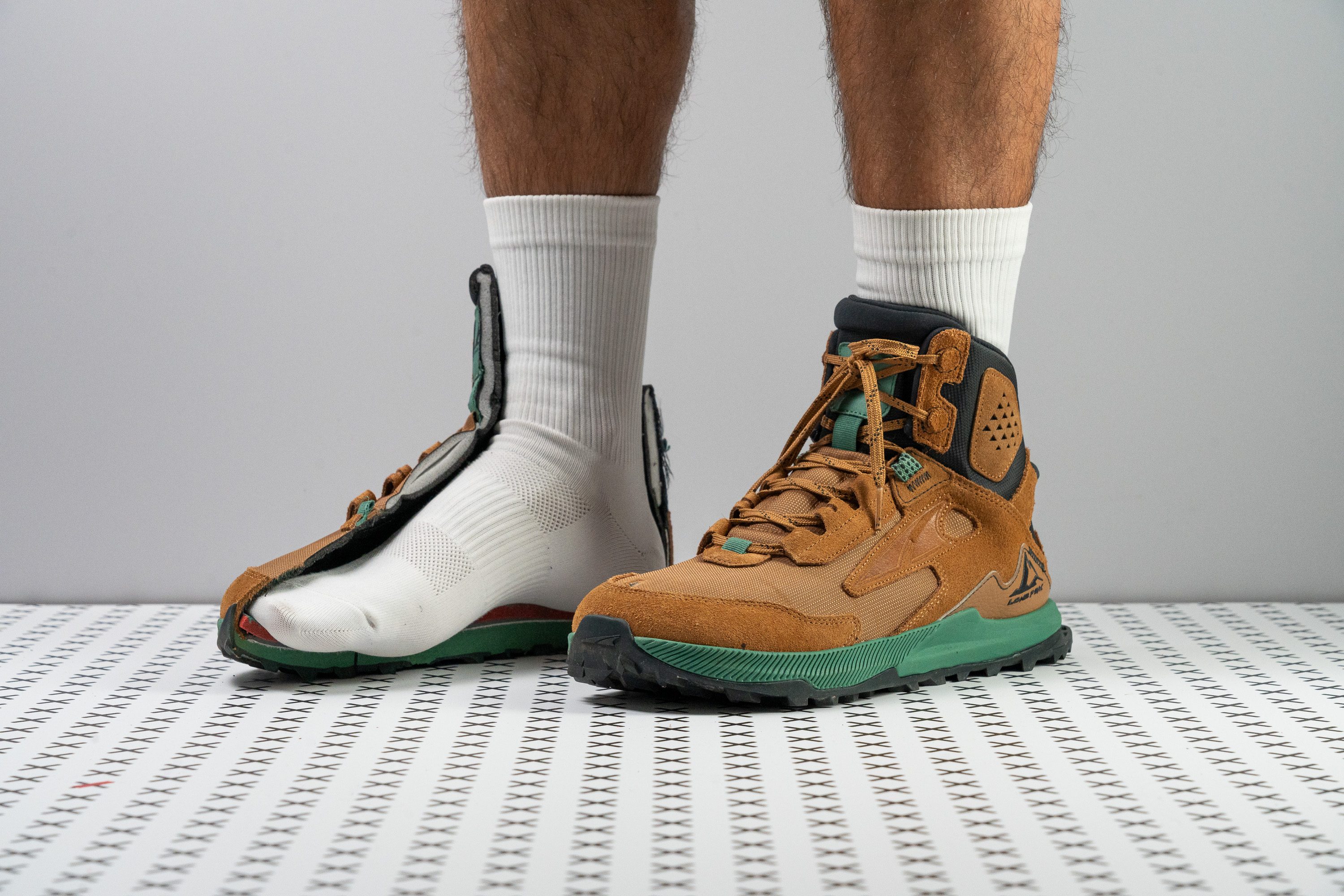Our verdict
Pros
- Exceptionally comfortable
- Astonishingly lightweight
- Gives strides a boost
- Performs consistently in cold conditions
- Superb durability
- Supportive around the ankle
- Excellent attention to detail
- Decent moisture resistance
- Dries quickly
Cons
- Subpar grip on technical terrain
- Underwhelming stability
- Quite hard to put on and off
Audience verdict
Comparison
The most similar hiking boots compared
+ + Add a shoe | |||||
|---|---|---|---|---|---|
| Audience score | 74 Bad! | 83 Good! | 90 Great! | 90 Great! | |
| Price | $160 | $110 | $200 | $200 | |
| Trail terrain | LightModerate | Moderate | LightModerate | LightModerate | |
| Shock absorption | Moderate | Low | High | Moderate | |
| Energy return | Moderate | High | High | Moderate | |
| Weight lab Weight brand | 12 oz / 339g 12.8 oz / 362g | 18.1 oz / 513g 17.1 oz / 485g | 15 oz / 425g 15 oz / 425g | 18.7 oz / 529g 19.5 oz / 553g | |
| Lightweight | ✓ | ✗ | ✓ | ✗ | |
| Breathability | Moderate | Moderate | Breathable | Moderate | |
| Use | Day HikingUrban hikingBeginners | Light HikingUrban hikingBeginners | Day HikingSpeed HikingLight Hiking | Day HikingUrban hikingSnow | |
| Orthotic friendly | ✓ | ✓ | ✓ | ✓ | |
| Drop lab | 2.6 mm | 14.0 mm | 14.4 mm | 13.8 mm | |
| Size | Half size small | True to size | True to size | True to size | |
| Midsole softness | Soft | Firm | Soft | Balanced | |
| Difference in midsole softness in cold | Small | Small | Big | Normal | |
| Heel counter stiffness | Flexible | Flexible | Flexible | Moderate | |
| Stiffness | Flexible | Moderate | Flexible | Moderate | |
| Outsole hardness | Average | Soft | Very soft | Average | |
| Waterproofing | Water repellent | - | - | Waterproof | |
| Material | MeshSuede | Leather | KnitMesh | Suede | |
| Season | All seasons | All seasons | SummerAll seasons | - | |
| Toebox durability | Bad | - | Decent | Good | |
| Heel padding durability | Good | - | Good | Bad | |
| Outsole durability | Bad | - | Good | Decent | |
| Width / fit | Medium | Narrow | Wide | Medium | |
| Toebox width | Wide | Narrow | Medium | Medium | |
| Lug depth | 4.0 mm | 3.4 mm | 3.7 mm | 4.0 mm | |
| Heel stack lab | 26.4 mm | 34.6 mm | 38.4 mm | 36.8 mm | |
| Forefoot | 23.8 mm | 20.6 mm | 24.0 mm | 23.0 mm | |
| Widths available | Normal | NormalWide | Normal | NormalWideX-Wide | |
| Technology | - | Ortholite | - | OrtholiteVibram | |
| Cut | High cut | Mid cut | Mid cut | Mid cut | |
| Removable insole | ✓ | ✓ | ✓ | ✓ | |
| Ranking | #41 Bottom 1% | #31 Bottom 24% | #6 Top 15% | #5 Top 13% | |
| Popularity | #27 Bottom 34% | #8 Top 20% | #14 Top 35% | #7 Top 18% |
Who should buy
We recommend the Altra Lone Peak Hiker 2 as an excellent hiking companion for:
- Hikers in the market for an incredibly comfy zero-drop hiking boot for less challenging terrains
- Speedy hikers looking for a nimble and lightweight boot that feels more like a trail runner underfoot
- Year-round adventurers who need a boot that performs consistently from blustering summer treks to frigid winter hauls.
- Casual hikers looking for a boot that's good for long hauls as well as quick strolls through the park or around town
- Those with broad feet prone to hotspots and blisters in need of a snug but accommodating toebox
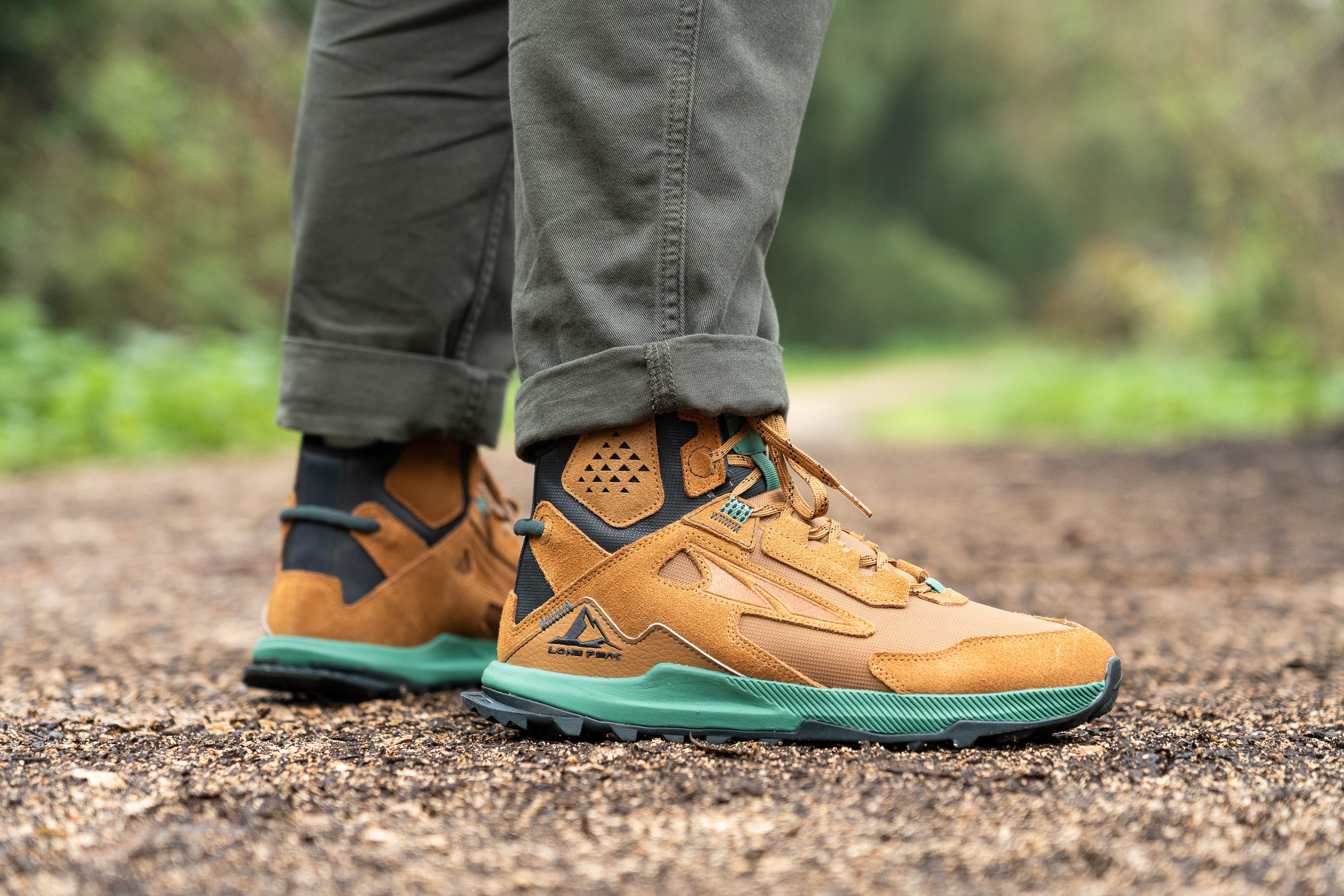
Who should NOT buy
While the Lone Peak Hiker 2 provides excellent traction on dirt trails, we felt decidedly less surefooted on gravelly or rocky trails. For advanced hikers who frequently traverse more technical trails, we recommend the more aggressive La Sportiva Ultra Raptor II Mid GTX instead.
The Lone Peak Hiker 2 is weatherproof, but not waterproof. So while the boot will keep our feet relatively dry during rainfall, it won't help much when wading through riverbeds or streams. For those who need to keep their feet dry, especially in the colder months, we recommend the Hoka Trail Code GTX instead.
The flexibility of the Lone Peak Hiker 2 certainly contributes to its comfy, trail-shoe vibe, but also detracts from its stability. Especially as the mile markers wear on and foot fatigue sets in. Backpackers looking to schlep heavy loads across vast distances will be better served by a more stable boot like the much heavier but supportive Salomon Quest 4 GTX.
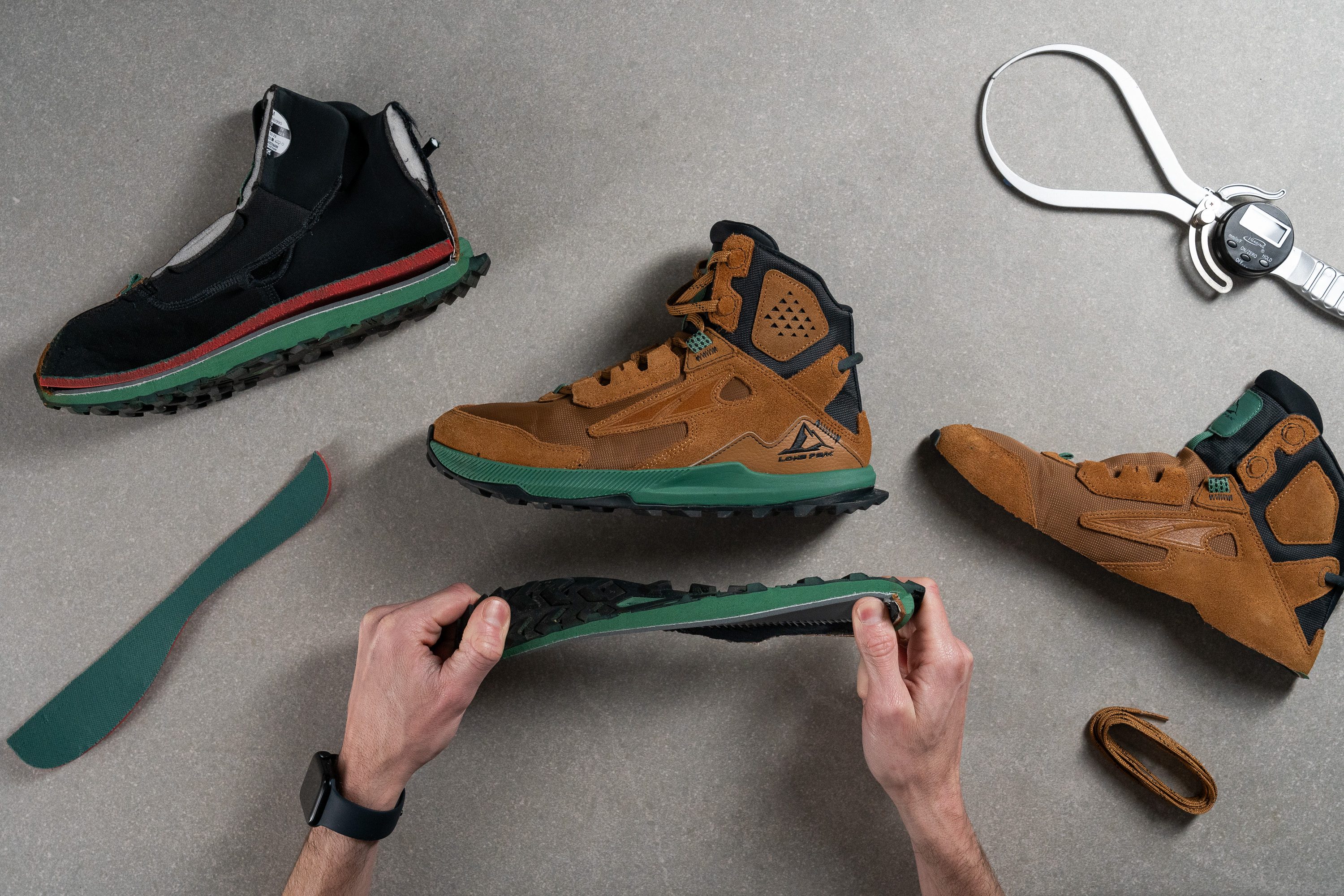
The instability of the Lone Peak Hiker 2 will feel even more pronounced for those with narrow feet who will have to put in more effort to stabilize their landings as their feet swim around in the toebox. For a more snug alternative, we recommend looking into the also lightweight Hoka Anacapa Mid GTX instead.
Cushioning
Shock absorption
The Lone Peak Hiker 2 has a low-cushion setup offering a more trail-connected ride than the average hiking boot. You can still expect sufficient impact protection from its moderate shock absorption of 98 SA but ground feel is quite pronounced here.
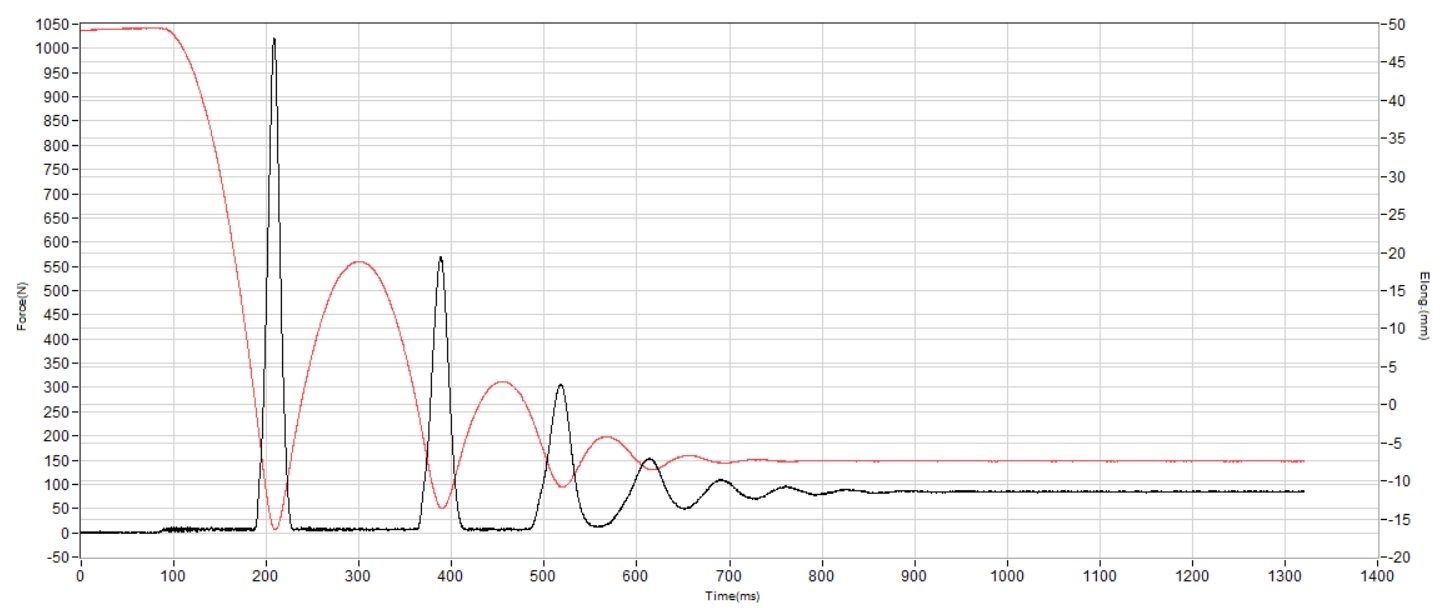
| Lone Peak Hiker 2 | 98 SA |
| Average | 93 SA |
Energy return
There is not much bounce in this Altra boot either, as it exhibited just a standard energy return of 49.1%. It is responsive in the sense of better ground feedback, but not in a way that makes the ride springy and bouncy.
| Lone Peak Hiker 2 | 49.1% |
| Average | 50.5% |
Heel stack
We measured the Lone Peak Hiker 2's stack to be 26.4 mm thick at the heel. This is notably lower than average making the ground feel much more pronounced.
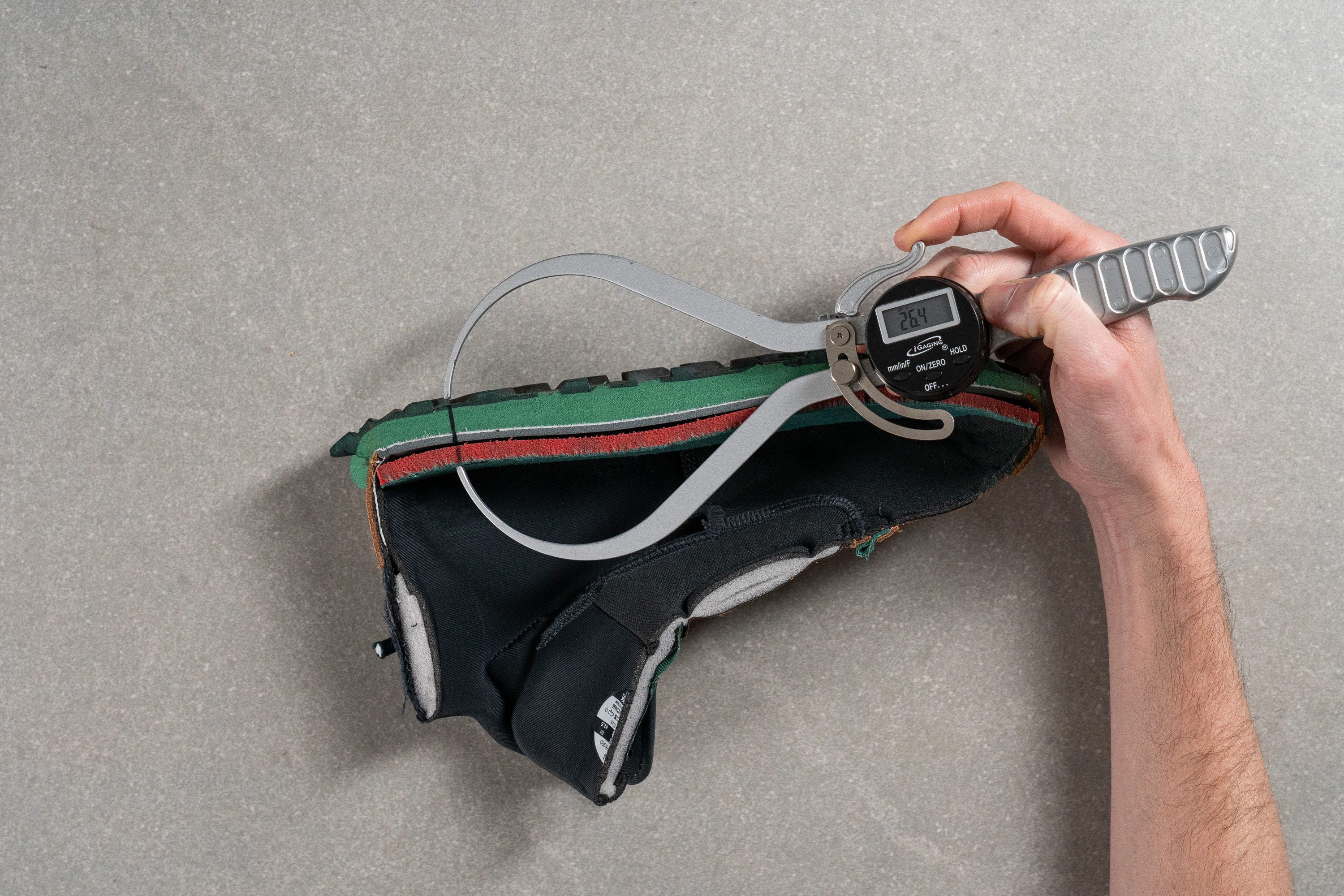
| Lone Peak Hiker 2 | 26.4 mm |
| Average | 36.3 mm |
Forefoot stack
Because it is supposed to be a zero-drop boot, we expected the forefoot stack to match the heel. However, there's a bit of a discrepancy in the Lone Peak Hiker 2.
Following the guidelines set by World Athletics, we measured the Lone Peak Hiker 2's forefoot stack at 23.8 mm which is a few millimeters lower than the heel.
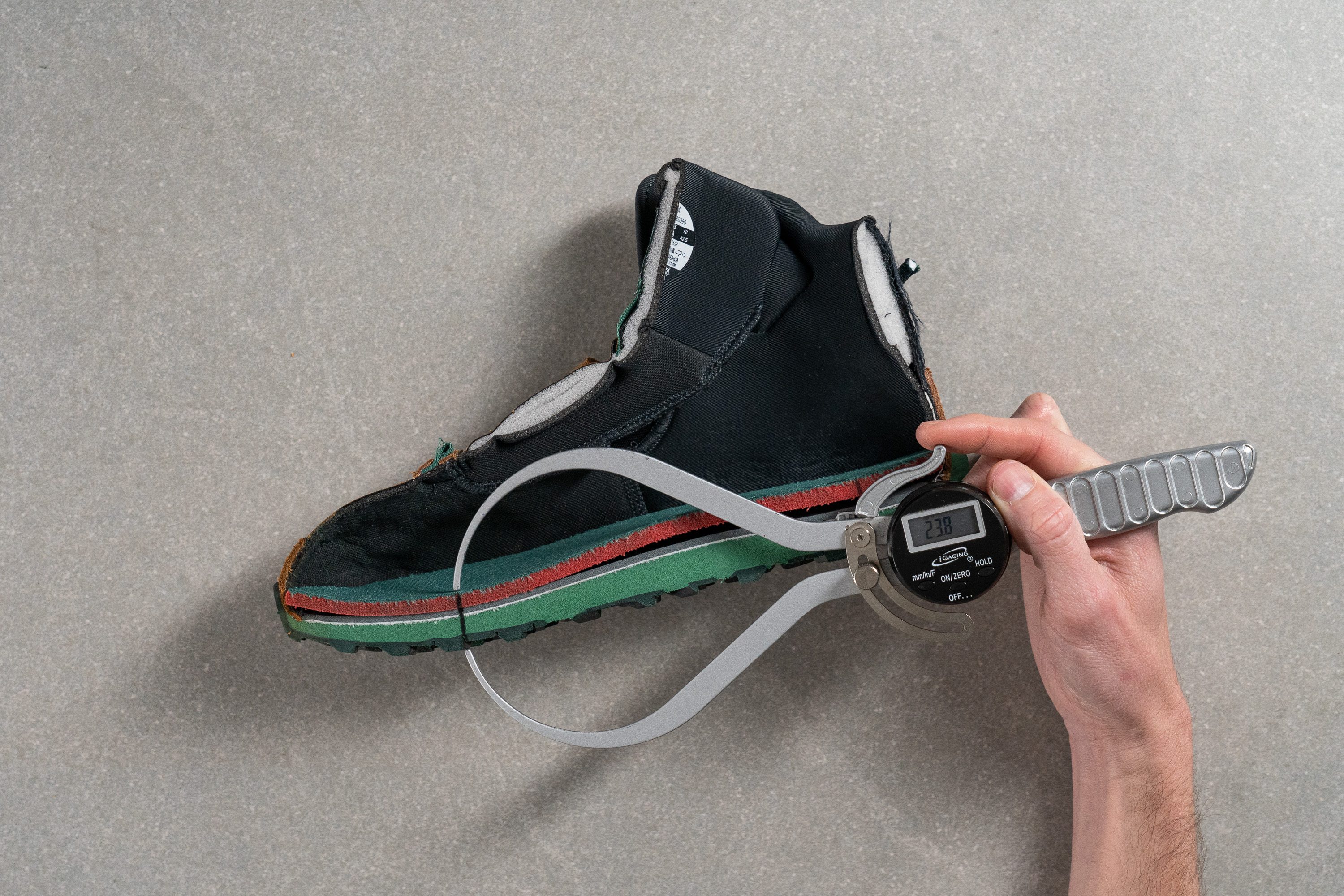
| Lone Peak Hiker 2 | 23.8 mm |
| Average | 23.0 mm |
Drop
The difference in our stack measurements means that the Lone Peak Hiker 2 actually sports a 2.6 mm heel drop. This is still a more parallel-to-the-ground experience than most hiking boots offer and will only be noticeable to true zero-drop purists.
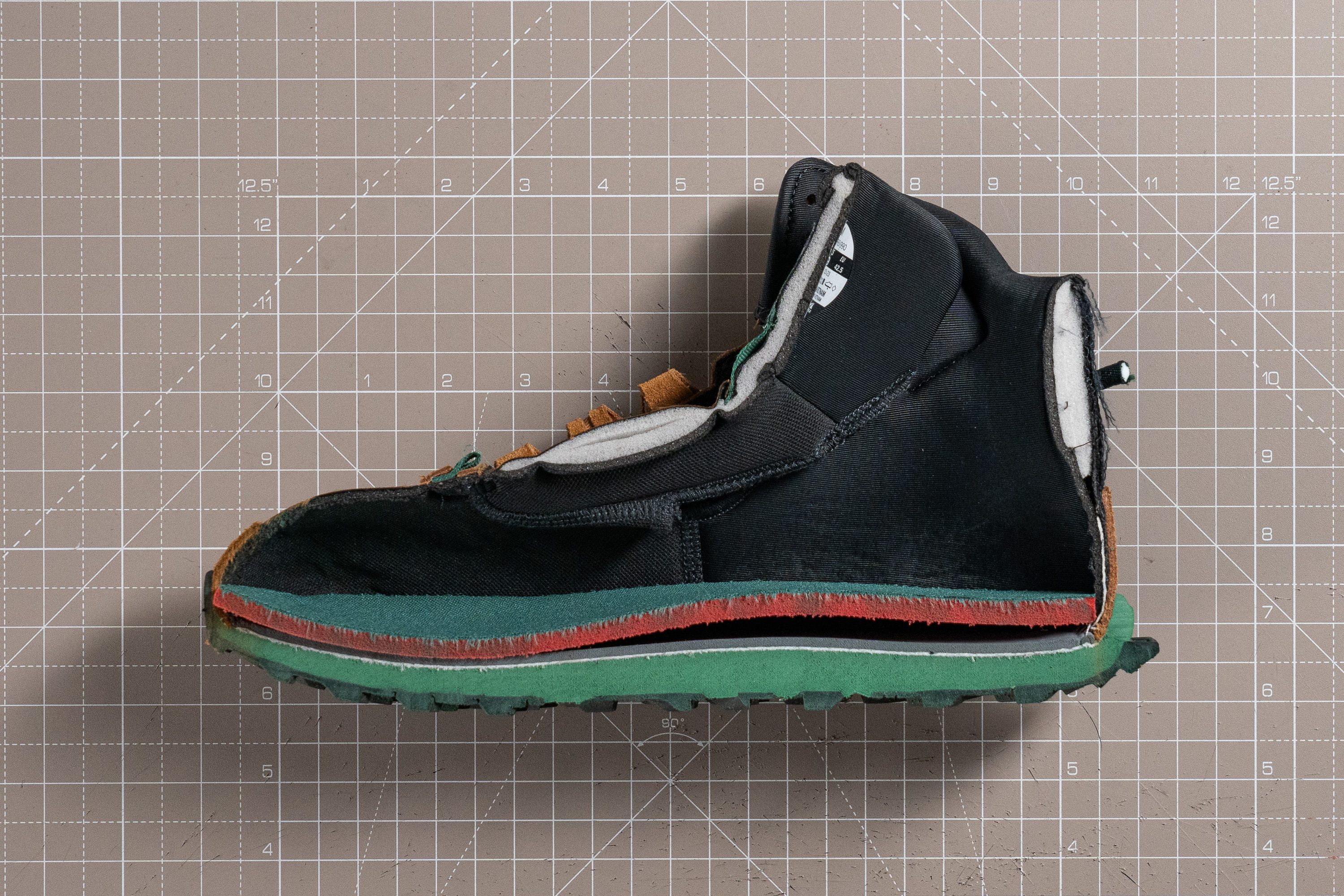
| Lone Peak Hiker 2 | 2.6 mm |
| Average | 13.3 mm |
Midsole softness
Pressing our durometer against the midsole yields a reading of 22 HA. This level of softness provides a balanced level of cushioning
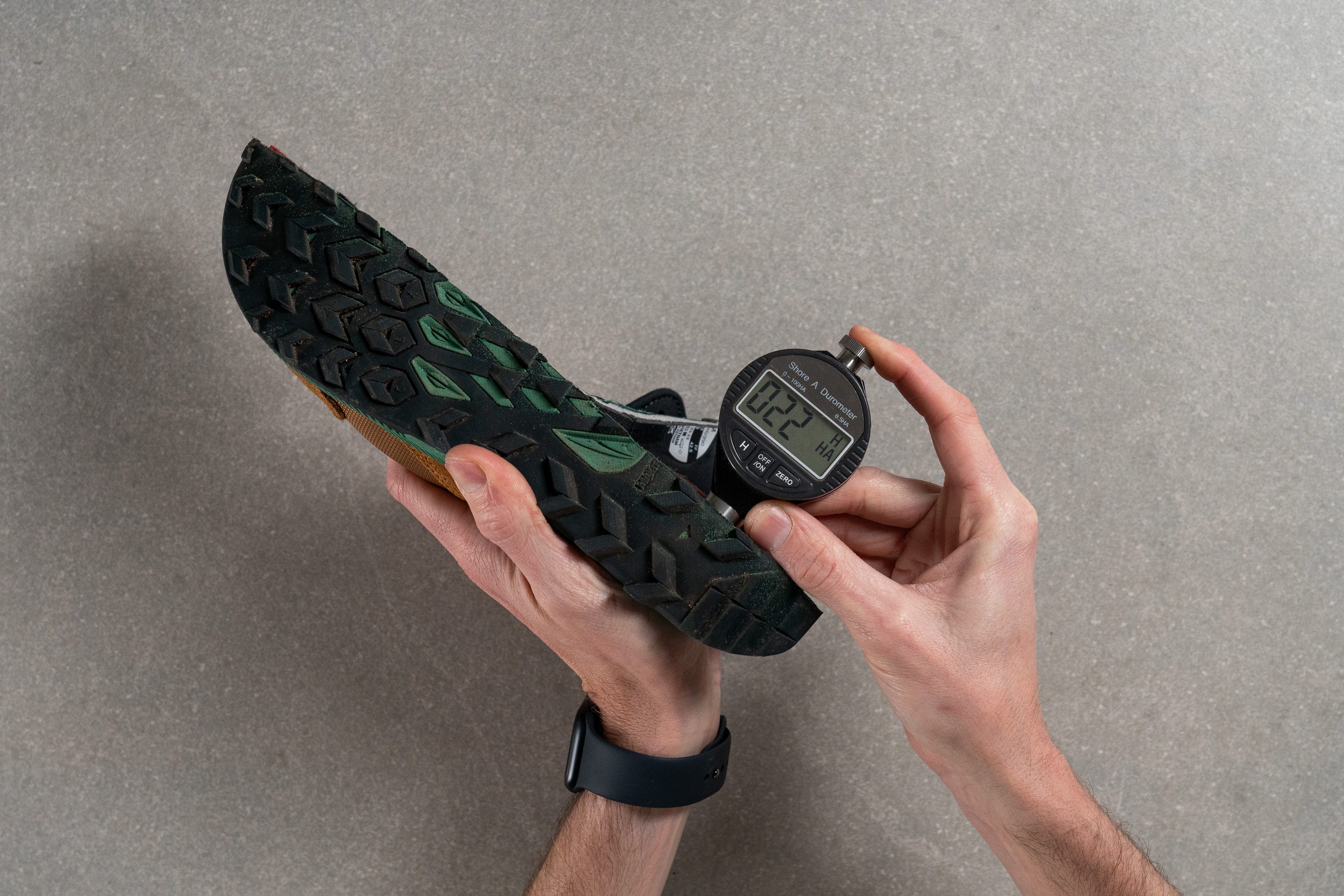
| Lone Peak Hiker 2 | 22.0 HA |
| Average | 28.4 HA |
Size and fit
Size
Altra Lone Peak Hiker 2 fits half size small (36 votes).
Consider sizing up
Internal length
| Lone Peak Hiker 2 | 268.7 mm |
| Average | 271.4 mm |
Width / Fit
According to the product specs, the Lone Peak Hiker 2 features Altra's Original Footshape which is supposed to be the brand's widest, most spacious fit.
However, when we retrieved a mold of the shoe's interiors using custom gel, it showed a pretty standard measurement in the widest part. At 94.9 mm, it is only about a millimeter wider than average.
This is odd considering that the Altra Lone Peak 8 shoe returned a notably higher reading of 97.8 mm. You might as well consider the Altra Olympus 6 Hike Mid GTX which is also built on the Original last but showed 98.8 mm in the widest part.
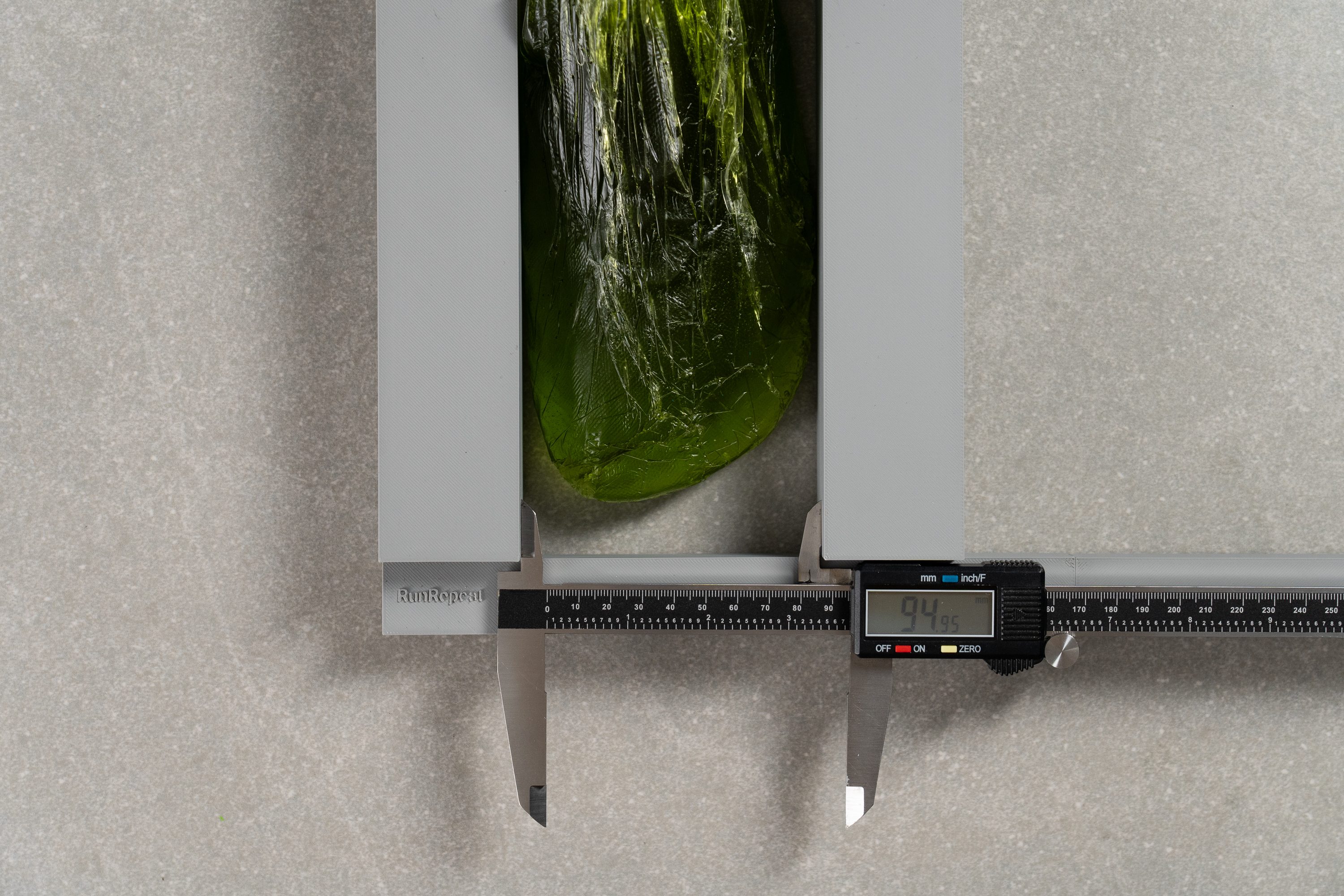
| Lone Peak Hiker 2 | 94.9 mm |
| Average | 93.8 mm |
Toebox width
On the bright side, the Lone Peak Hiker 2 does provide that natural foot-shaped silhouette we've come to love from Altra. Its square toebox shape has ZERO tapering towards the toes!
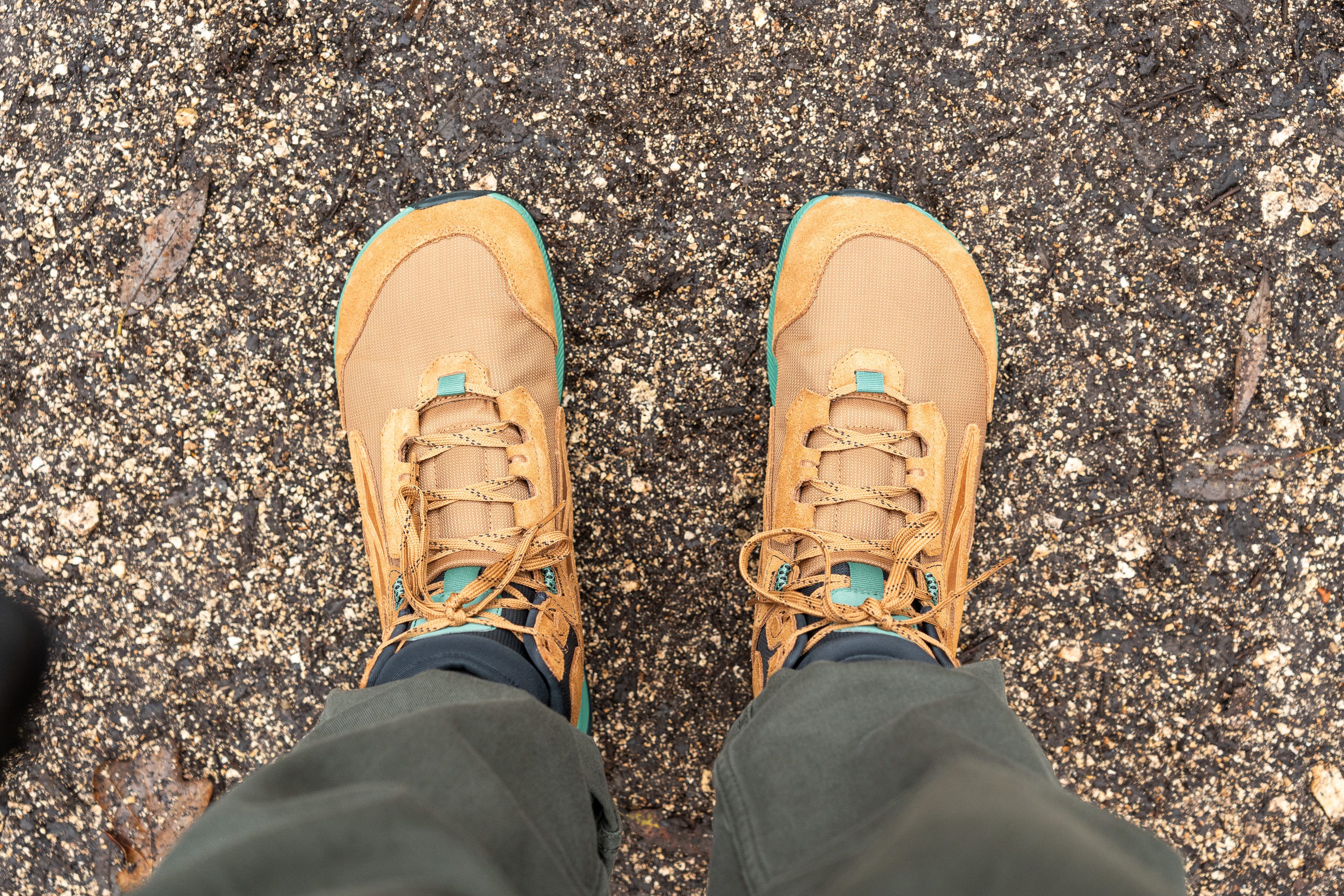
With a caliper reading of 80.9 mm near the big toe, the boot gave our toes plenty of room to splay out comfortably all throughout the hike.
Conversely, having so much internal real estate isn't ideal for people with narrow feet, as they will most likely shift around within the boot when traversing uneven terrains, which takes a toll on stability and can exacerbate foot fatigue.
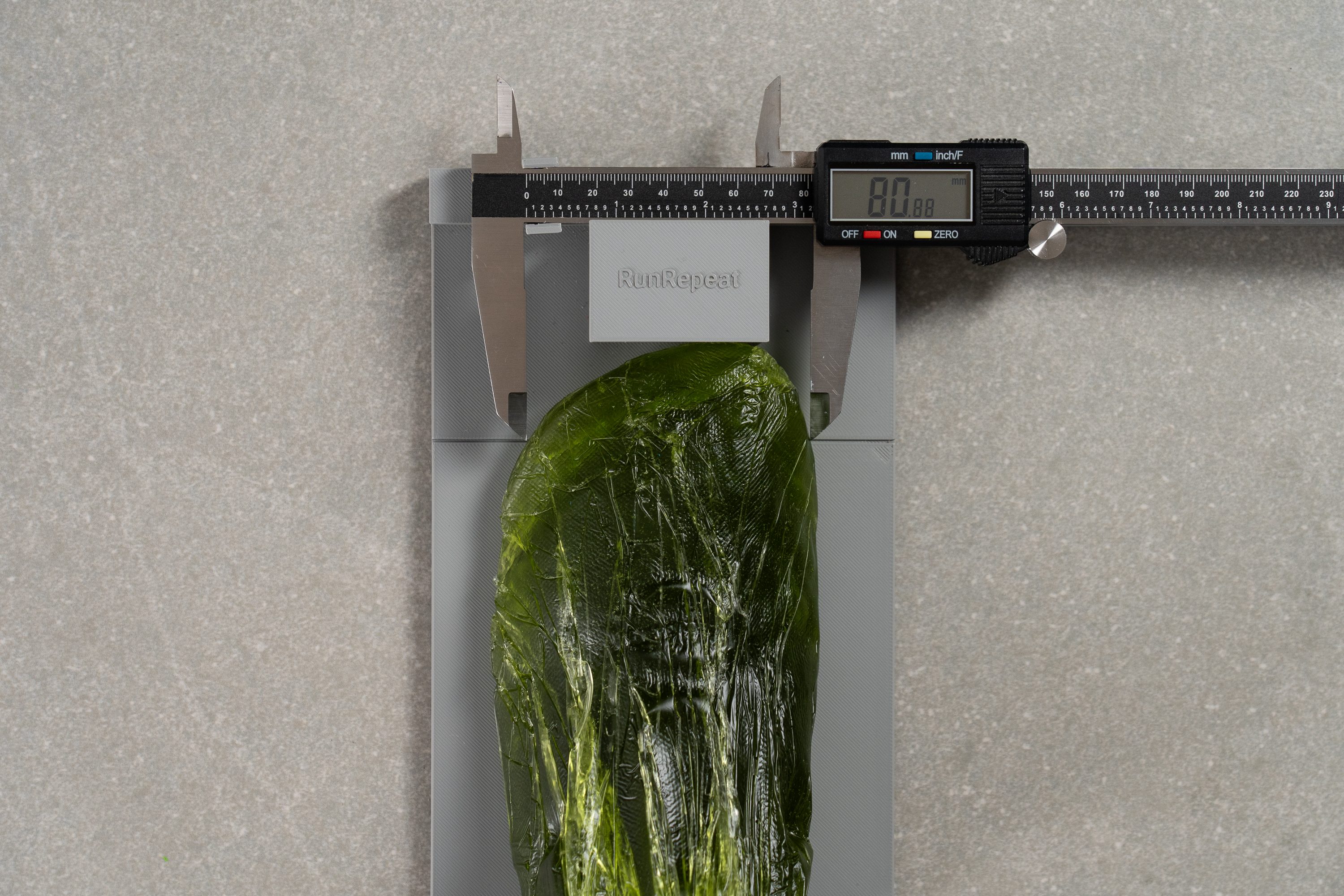
| Lone Peak Hiker 2 | 80.9 mm |
| Average | 71.2 mm |
Toebox height
However, the vertical space of this hiking boot turned out to be on par with the average at 27.5 mm. It didn't cause any pressure on top of our toes.
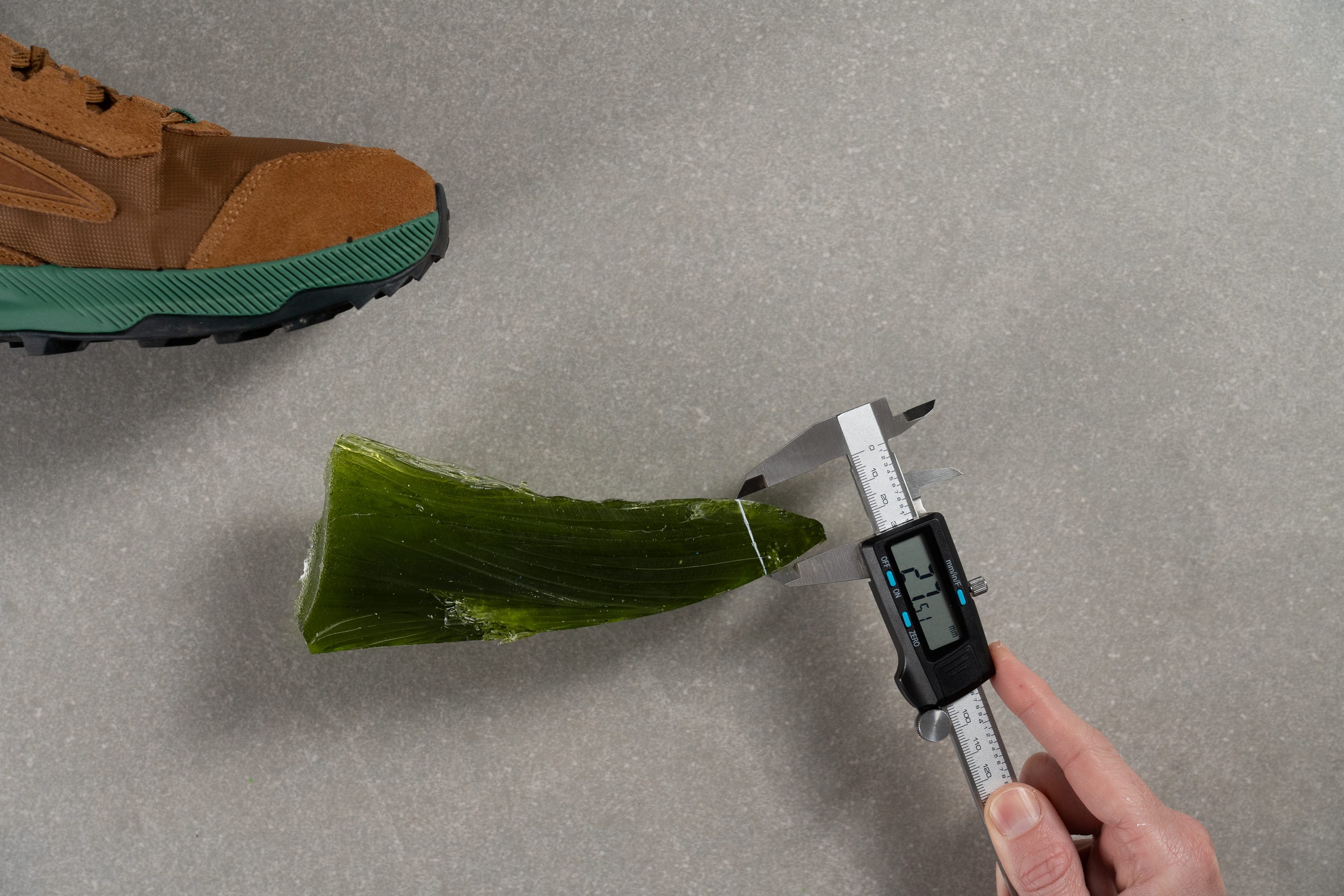
| Lone Peak Hiker 2 | 27.5 mm |
| Average | 27.4 mm |
Traction / Grip
Lug depth
The Lone Peak Hiker 2's lugs are 4 mm thick according to our caliper measurements, putting them on par with our current lab average.
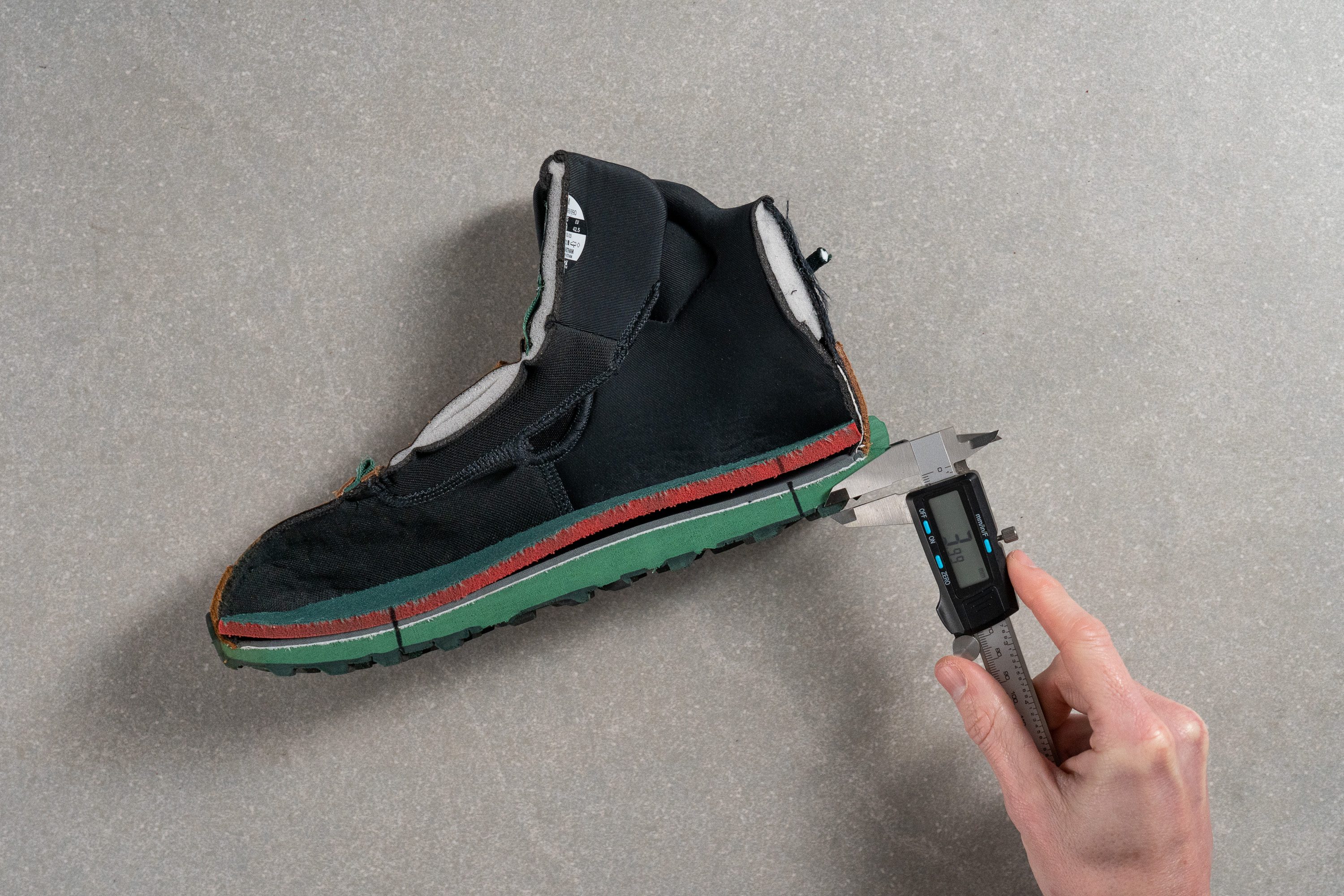
These multi-directional, chevron-shaped lugs provided us with excellent traction during our test hikes on dirt trails and well-manicured park trails.
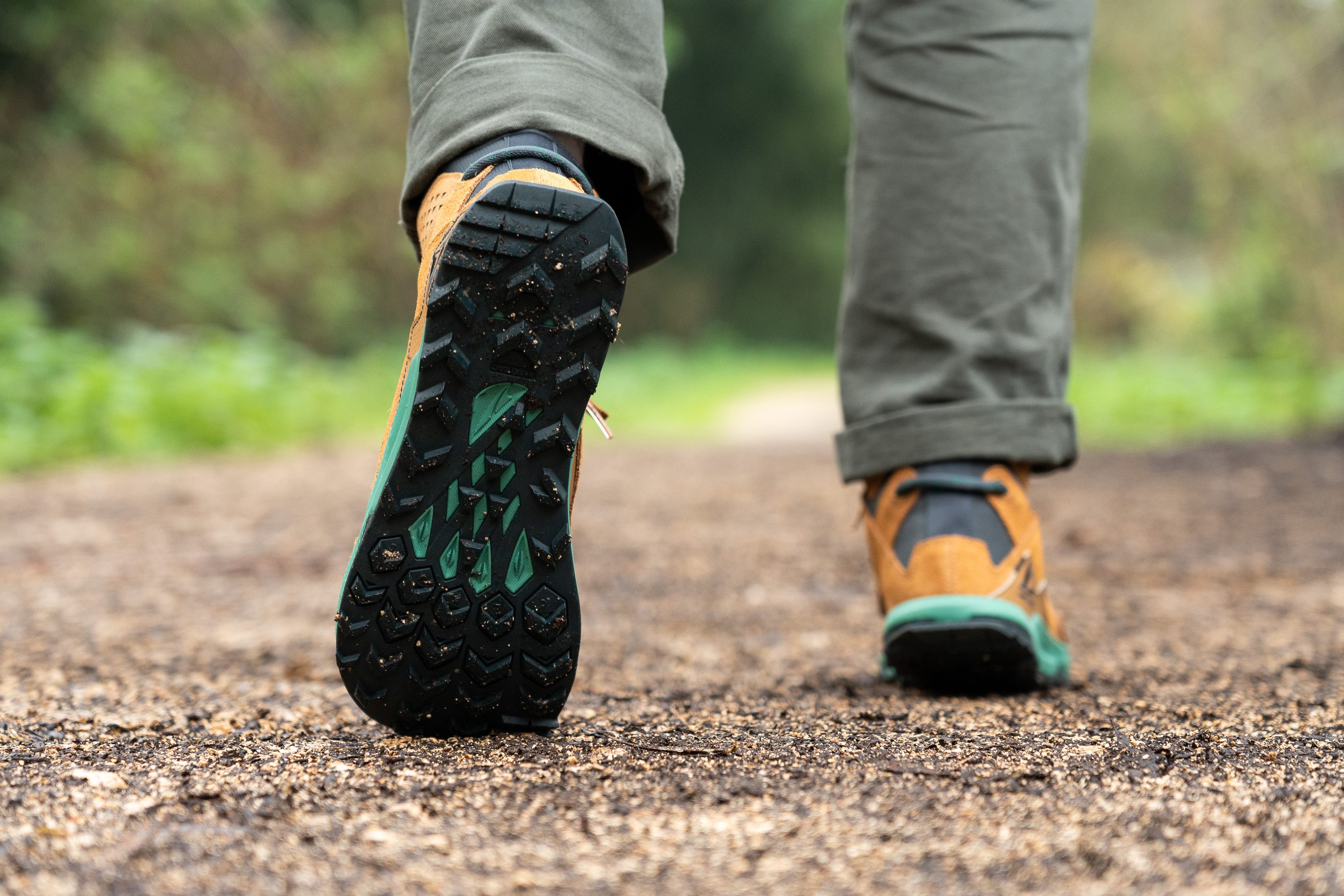
However, the boot did let us down when we tested it on more technical, gravelly trails where we felt decidedly less surefooted in our strides. We also recommend avoiding slick or muddy surfaces in this boot.
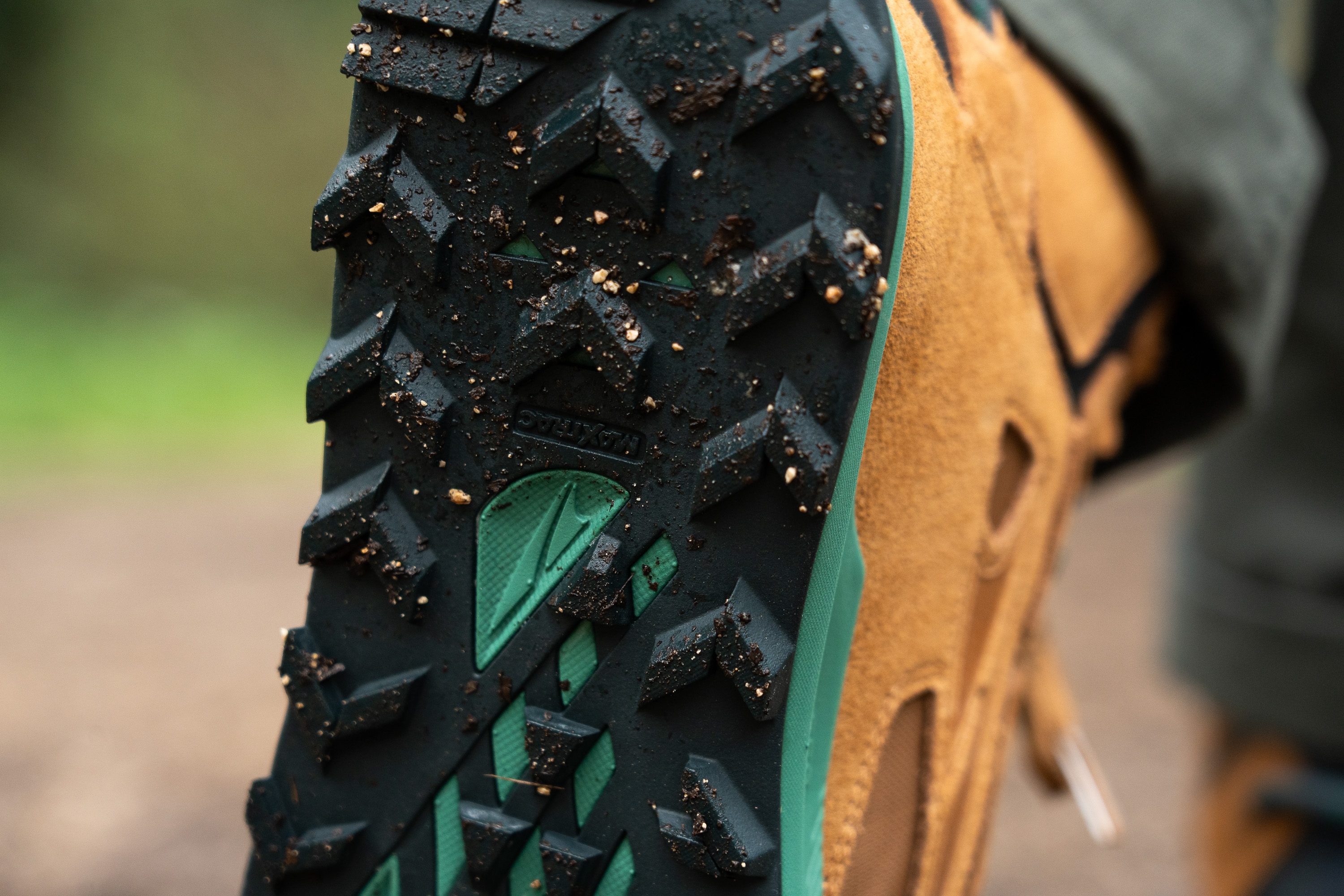
| Lone Peak Hiker 2 | 4.0 mm |
| Average | 4.3 mm |
Flexibility / Stiffness
We secured the Lone Peak Hiker 2 in our flexibility testing machine and found that it takes as little as 12.0N of force to bend by 30 degrees. That makes it more than half as flexible as the average hiking boot!
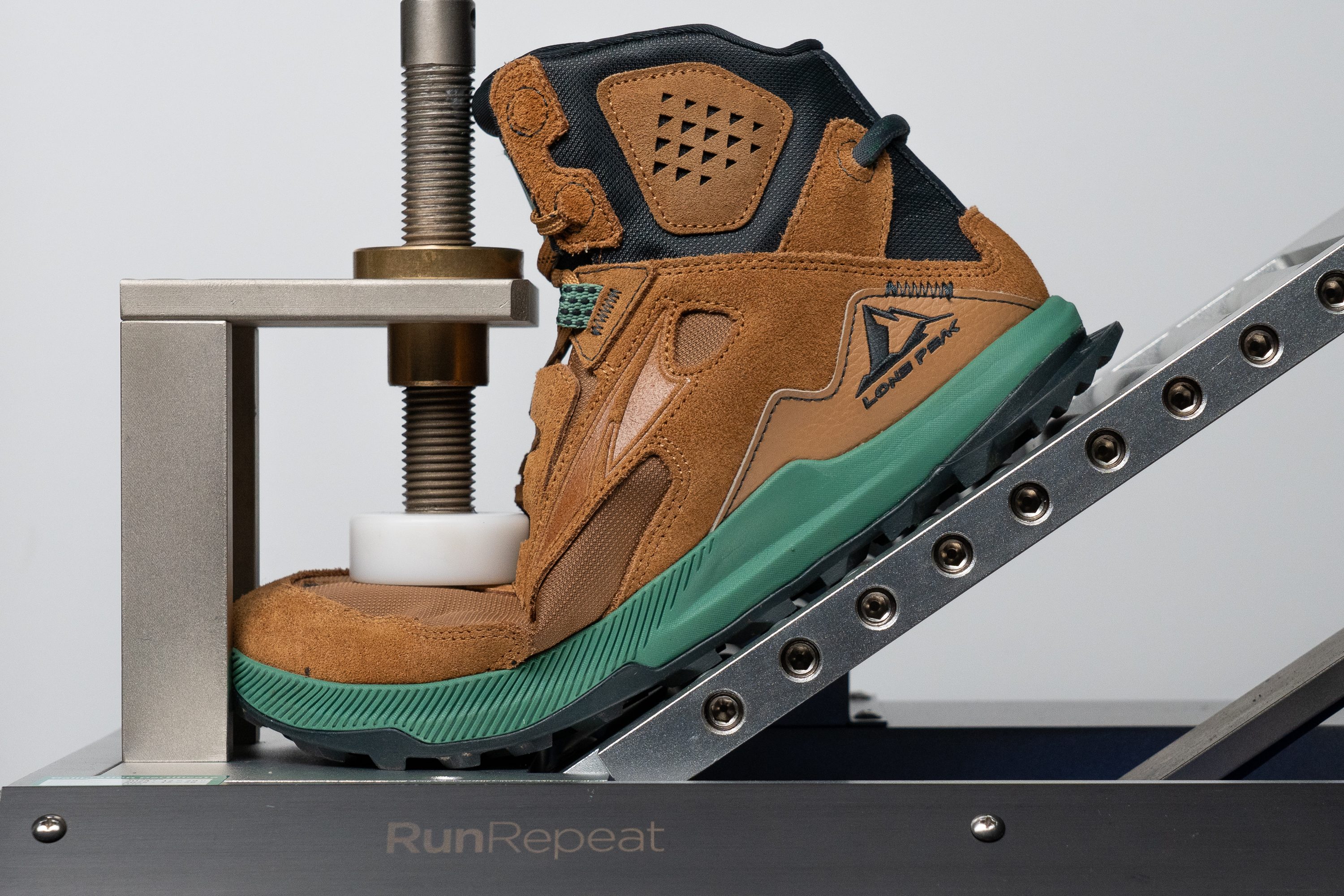
The flexibility of the Lone Peak Hiker 2 is thanks in part to the configuration of its lugs which are designed to line up with the bones of our foot, allowing the shoe to bend along with the natural flexion of our foot with relative ease.
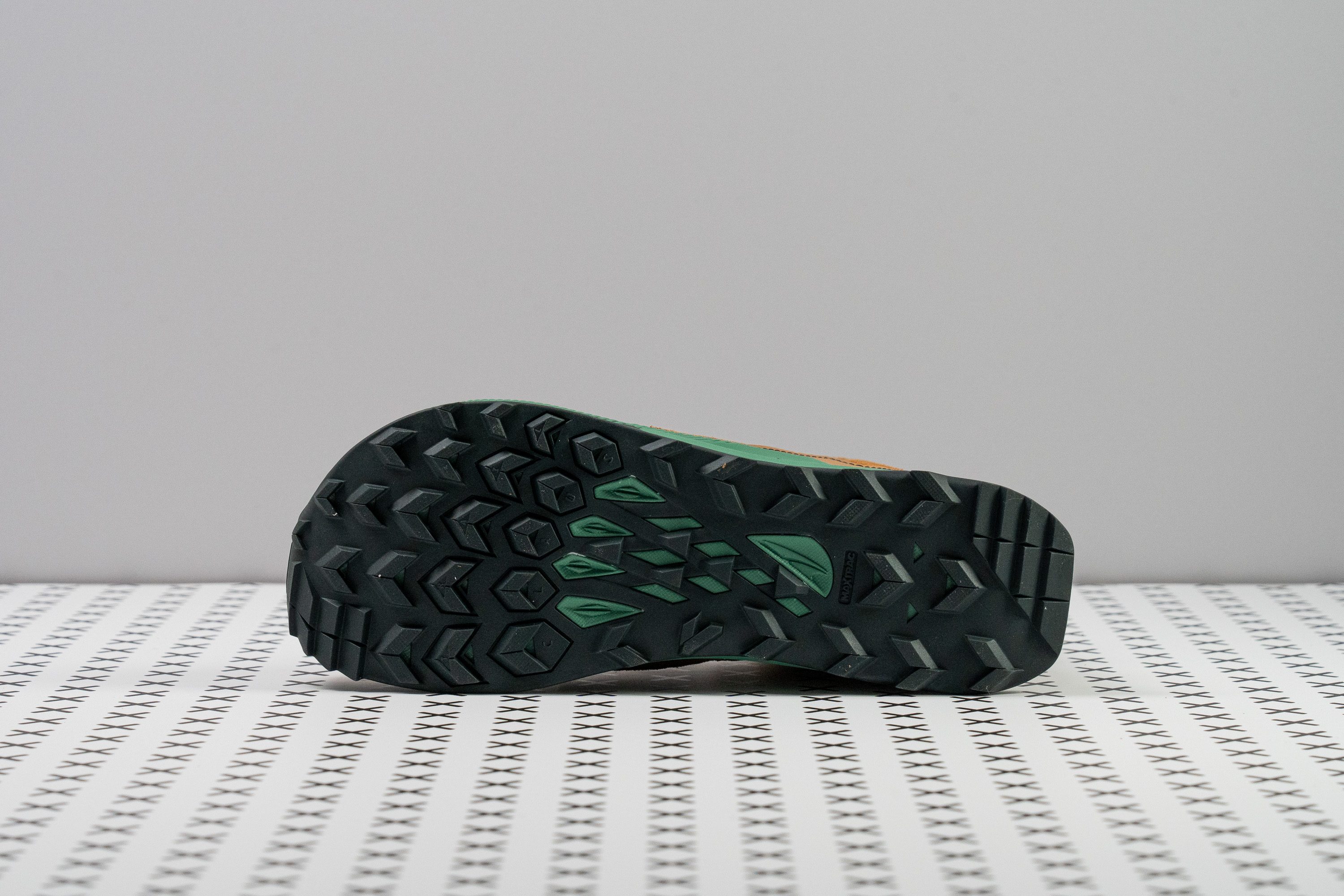
This certainly plays a role in how comfy and forgiving the Lone Peak Hiker 2 feels underfoot, however it does come at the expense of stability, especially when carrying a heavy pack.
| Lone Peak Hiker 2 | 12.0N |
| Average | 31.5N |
Stiffness in cold (%)
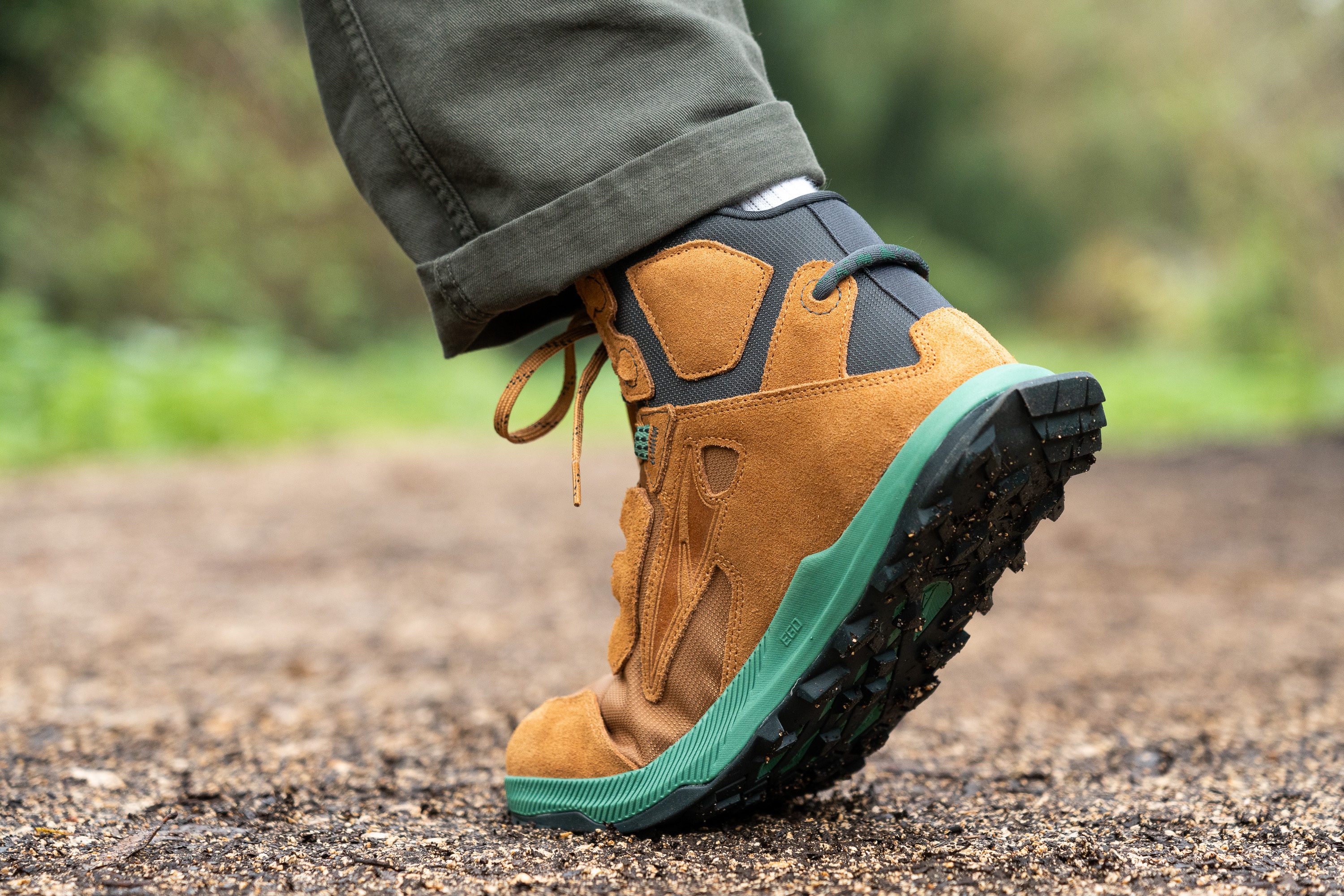
Weight
The Lone Peak Hiker 2 is a lean, mean, trail-crushing machine that tips our scale at only 12 oz (339g).
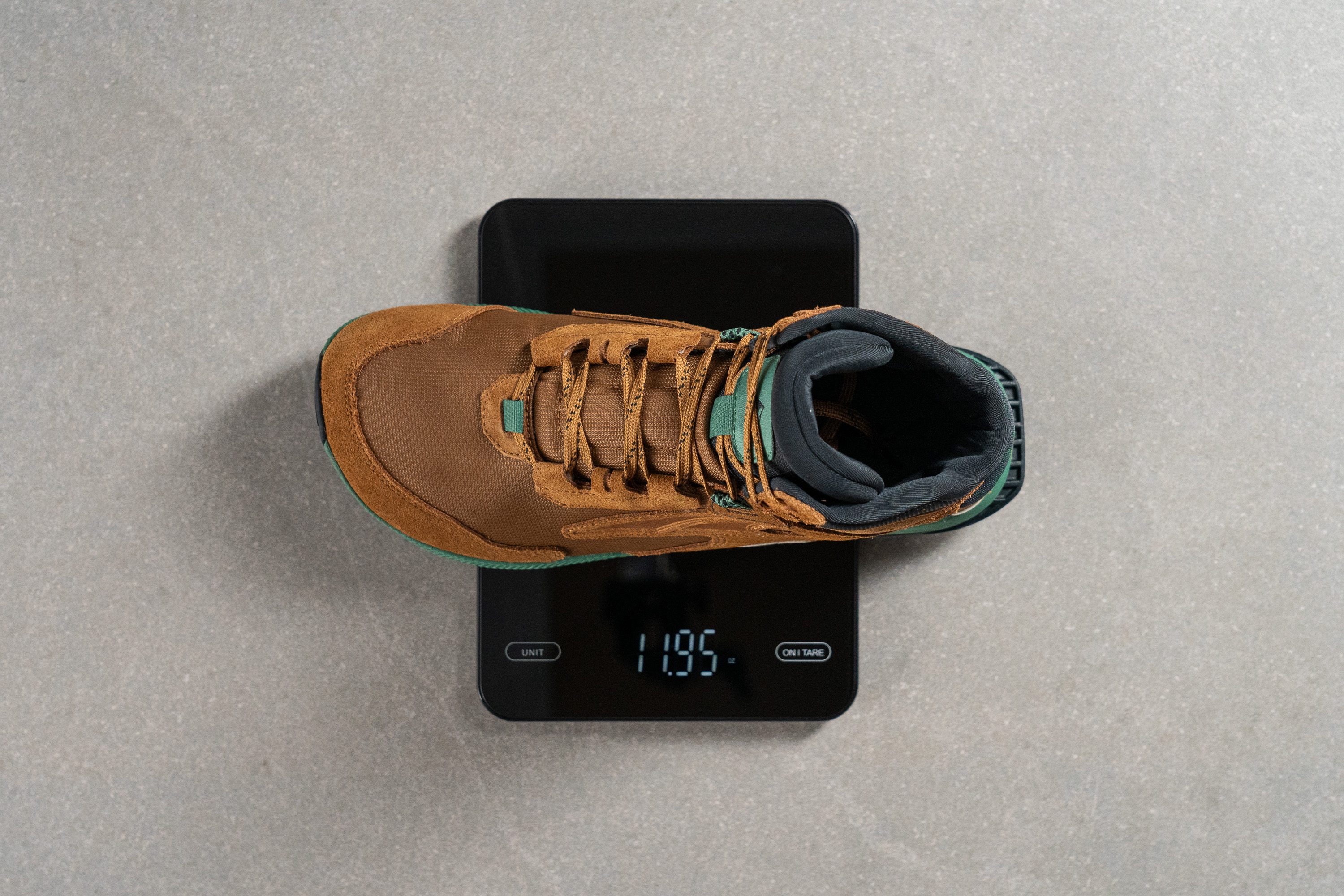
As such, the Lone Peak Hiker 2 feels incredibly feathery underfoot which not only makes it great for long hikes with lots of ascents and descents, but also unburdensome enough to support light jogs for whenever the need for speed kicks in.
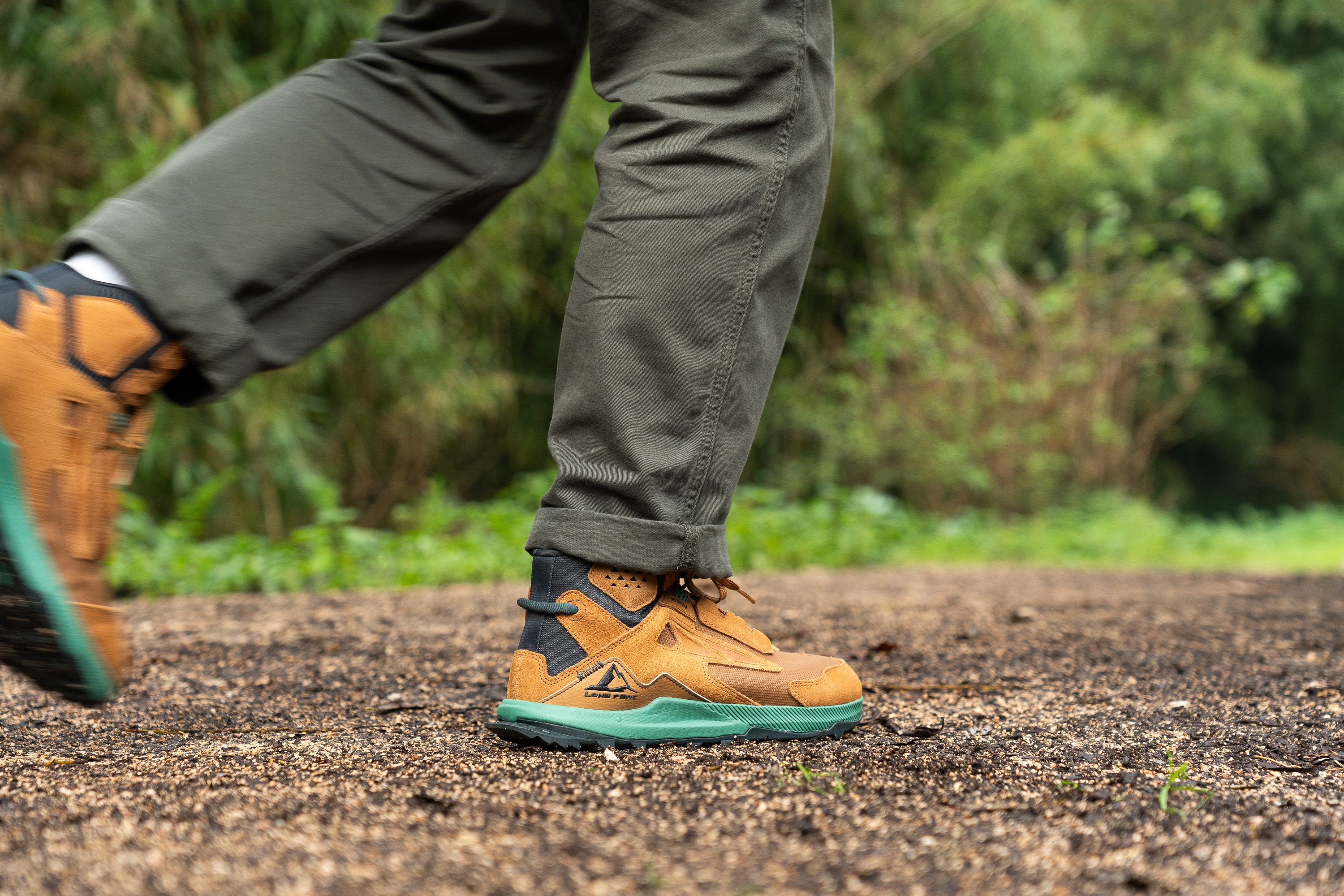
| Lone Peak Hiker 2 | 12.0 oz (339g) |
| Average | 18.7 oz (531g) |
Breathability
To see how breathable the Lone Peak Hiker 2 is, we pumped it full of smoke and observed how easily it was able to vent from the boot. As we can see from the footage, the smoke was only able to escape through the Lone Peak Hiker 2's porous, semi-gusseted tongue while the rest of the upper remains relatively airtight. This leads us to give the Lone Peak Hiker 2 a breathability score of 2 out of 5. This means that the boot will certainly feel stuffy during hikes on sweltering summer days but still has some level of airflow to keep it from becoming a stinky foot sauna.
Inspecting a cross-section of the mostly mesh upper, we see that it entirely blocks out the backlight, thus confirming the insular, weatherproof nature of the shoe. Just as light isn't able to peak through any pores of the upper, water is similarly repelled unless the boot gets drenched.
To see how the mech is able to repel water so efficiently, we took a look at it under the microscope which reveals an incredibly uniform and dense weave pattern with almost no gaps between the braids.
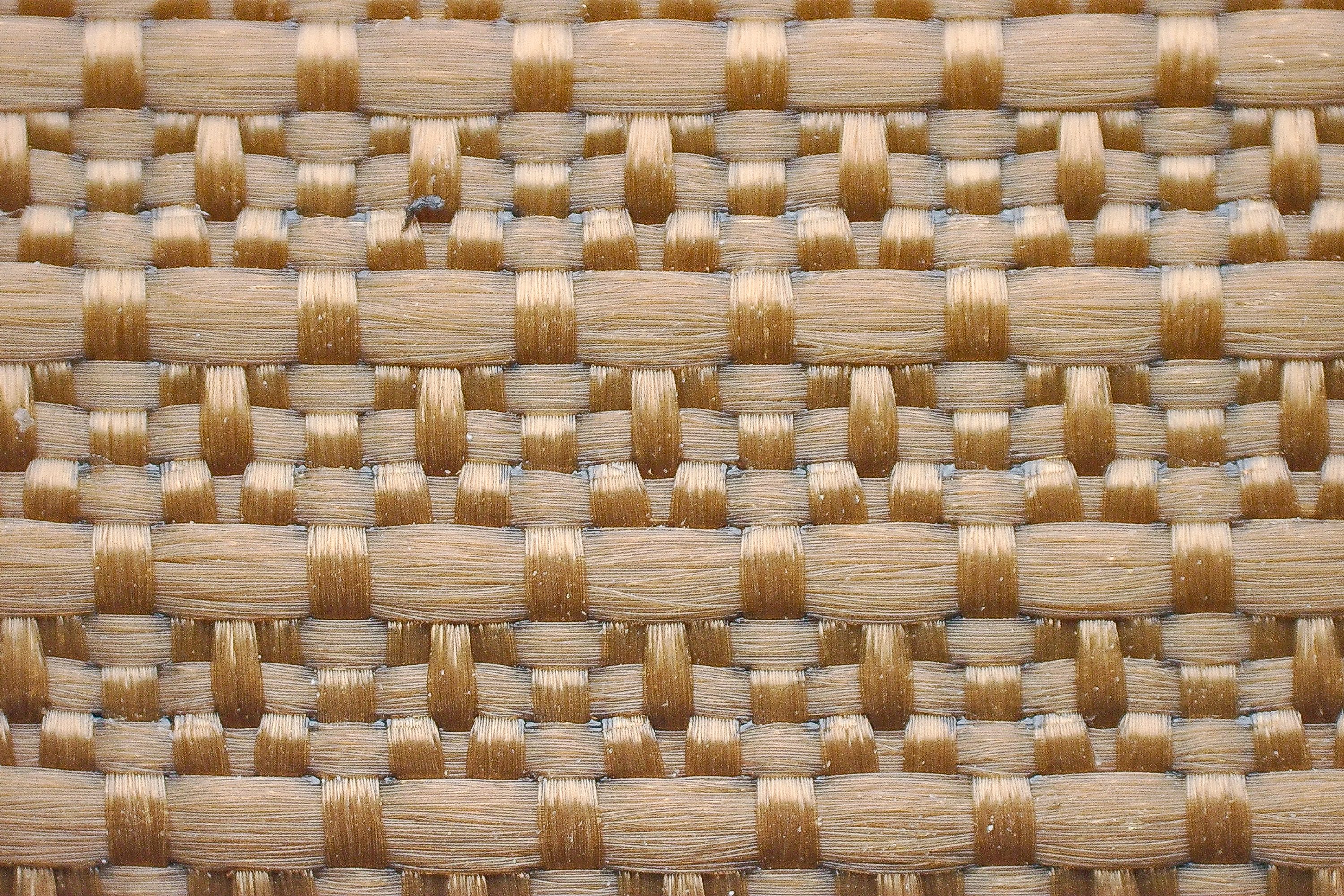
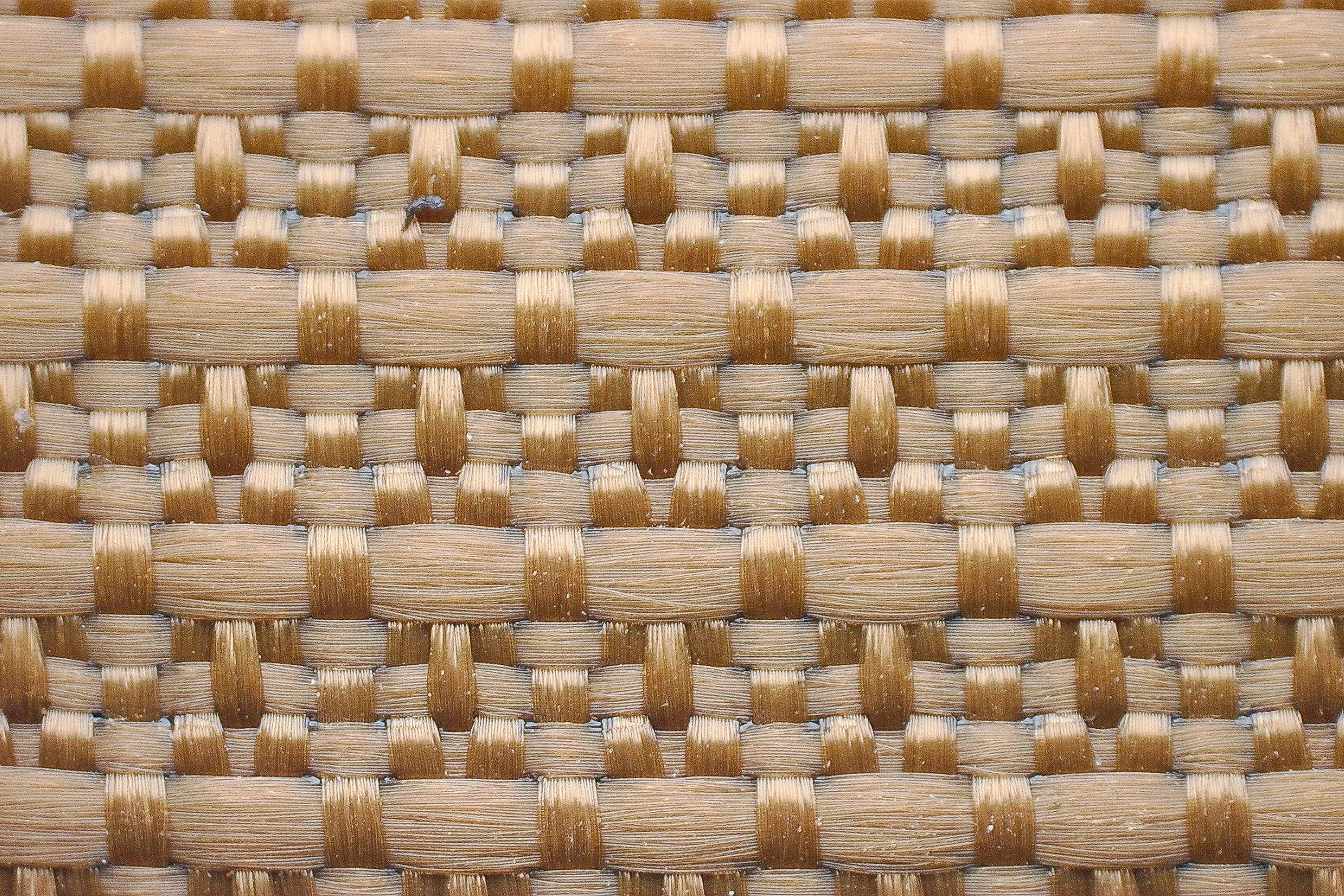
| Lone Peak Hiker 2 | 2 |
| Average | 1.3 |
Stability
Lateral stability test
The Lone Peak Hiker 2, for all its comfort, isn't a very stable shoe as demonstrated by how much lateral movement it allows as we shift our weight from side to side. This made traversing uneven terrains a little more challenging as we had to be more mindful of our steps and make lots of foot adjustments for balance. While this is fine when it comes to day hikes, we would recommend a more stable shoe like the Keen Pyrenees for long-haul backpacking adventures that involve carrying heavy loads.
Torsional rigidity
With its minimalist nature, the Lone Peak Hiker 2 did not resist our manual rigidity assessment so much, leading to a below-average stiffness score of 3 out of 5.
This Altra boot relies on a wide and grounded platform to provide surefooted landings as opposed to the stout midsoles and stabilizing components we see on most hiking boots.
| Lone Peak Hiker 2 | 3 |
| Average | 4.4 |
Heel counter stiffness
The Lone Peak Hiker 2's heel counter is somewhat flexible and earns a middle-of-the-road stiffness score of 3 out of 5. So while it does provide a secure lockdown that comfortably holds our heel in place, it doesn't do much to mitigate the rearfoot from rolling laterally.
| Lone Peak Hiker 2 | 3 |
| Average | 3.6 |
Midsole width - forefoot
The Lone Peak Hiker 2's midsole is about as wide as our current lab average at 110 mm according to our caliper measurements. This gives us a good amount of platform for relatively stable landings.
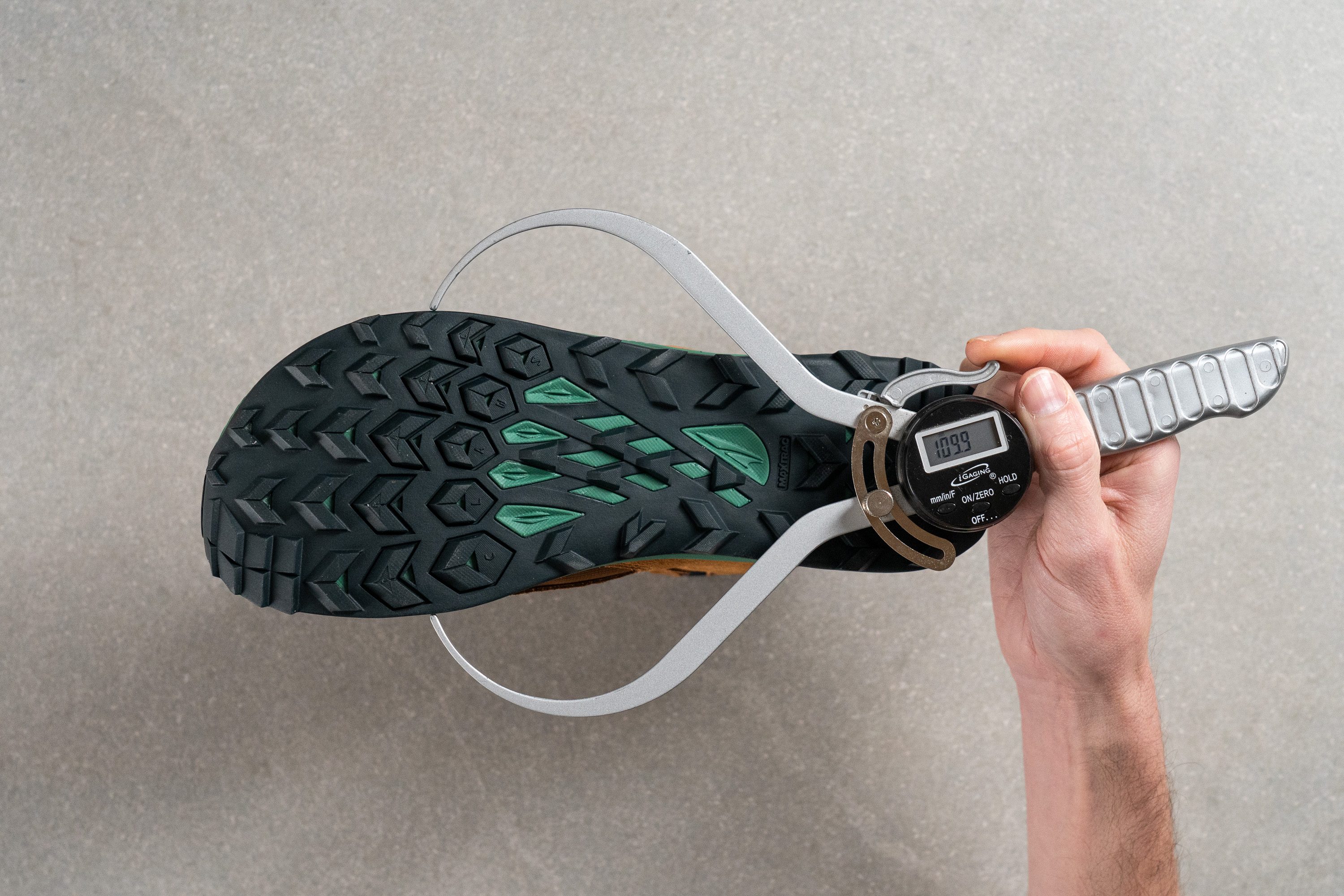
| Lone Peak Hiker 2 | 110.0 mm |
| Average | 111.5 mm |
Midsole width - heel
Back at the heel, we found the Lone Peak Hiker 2's midsole to be narrower than average at only 84.4 mm wide. This didn't really present us with any issues while testing, but those more accustomed to a wider base at the heel should look into the Timberland Sprint Trekker instead.
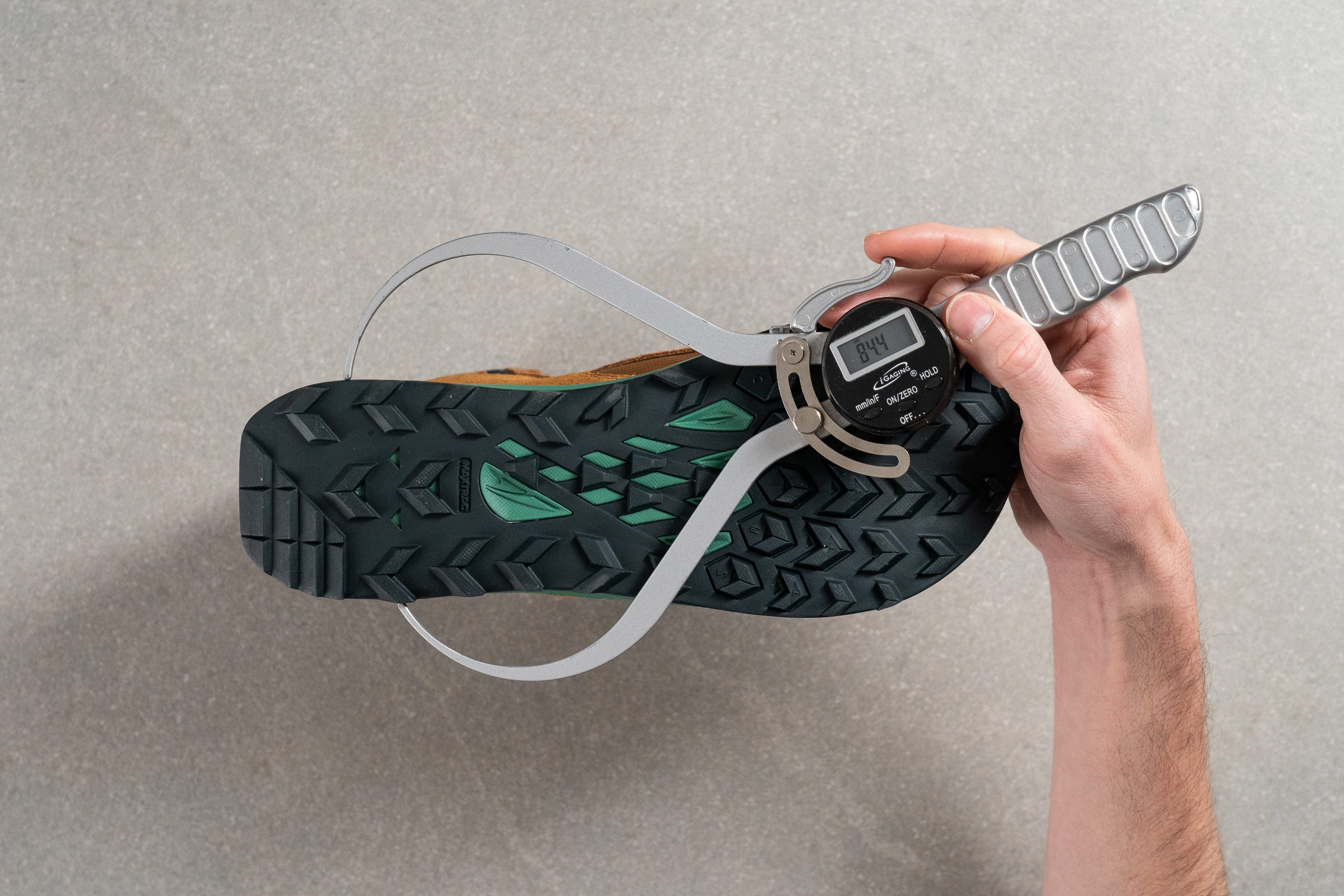
| Lone Peak Hiker 2 | 84.4 mm |
| Average | 87.6 mm |
Durability
Toebox durability
To simulate extreme wear and tear, we subjected the Lone Peak Hiker 2 to a series of Dremel tests, starting with the toebox. Spinning at 5K RPM, we set the tool's abrasive element to an unreinforced section of mesh with 3.2N of force.
While we were able to pierce through the mesh by the end of the twelve-second test, the hole left doesn't span the entire point of contact and the overall integrity of the toebox wasn't greatly affected, so we give the Lone Peak Hiker 2 a middle-of-the-road toebox durability score of 3 out of 5.
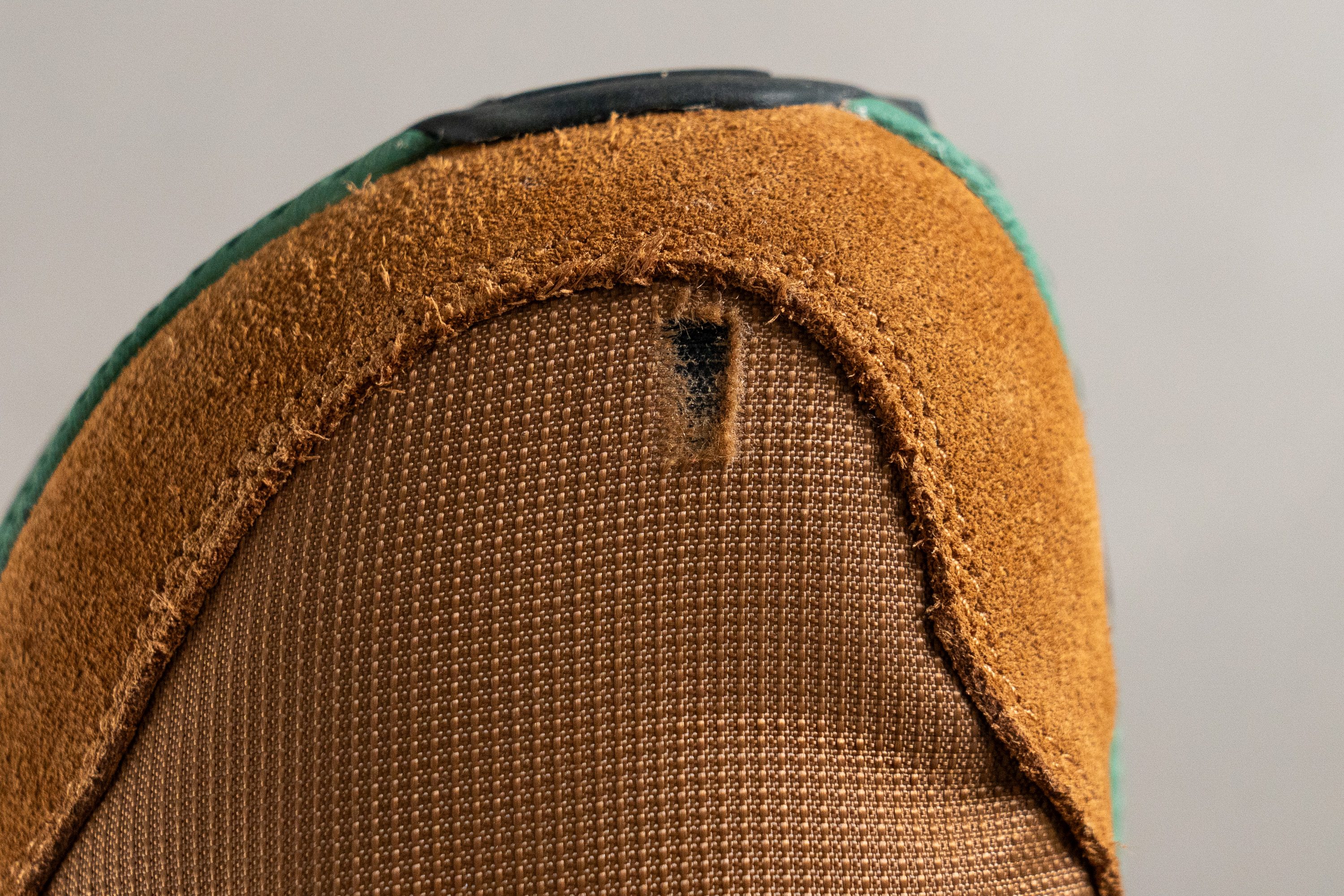
| Lone Peak Hiker 2 | 3 |
| Average | 4.3 |
Heel padding durability
The heel counter proved to be an even better adversary to our Dremel which merely skated off the lining material and left the padding beneath intact.
This stellar performance leads us to give the Lone Peak Hiker 2 a perfect 5 out of 5 for heel padding durability.
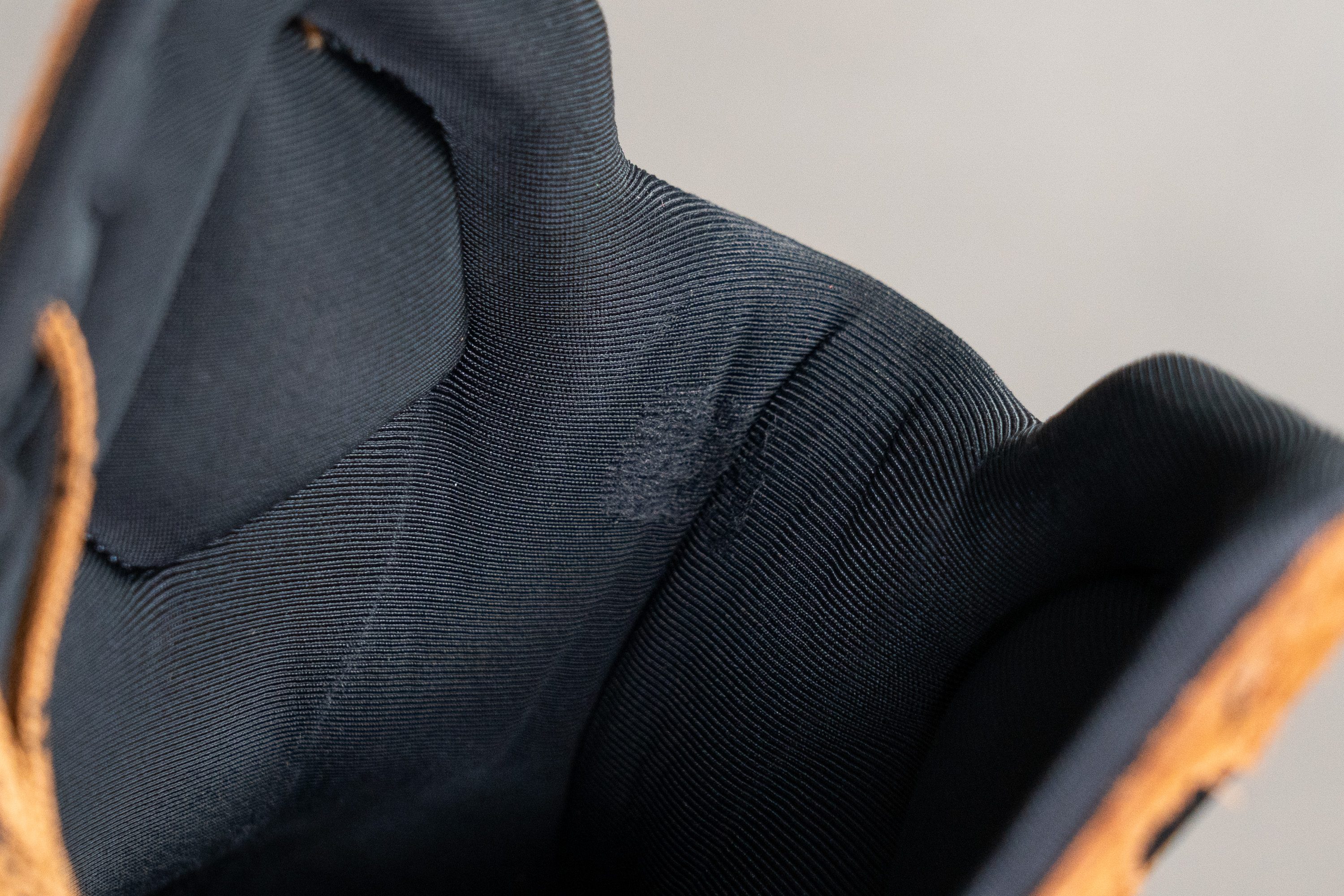
| Lone Peak Hiker 2 | 5 |
| Average | 3.6 |
Outsole hardness
The MaxTrac rubber compound that makes up the outsole gave us a durometer reading of 85.5 HC which is right around our current lab average. This usually denotes a good mix of grip and durability, the latter of which will be tested in the next section.
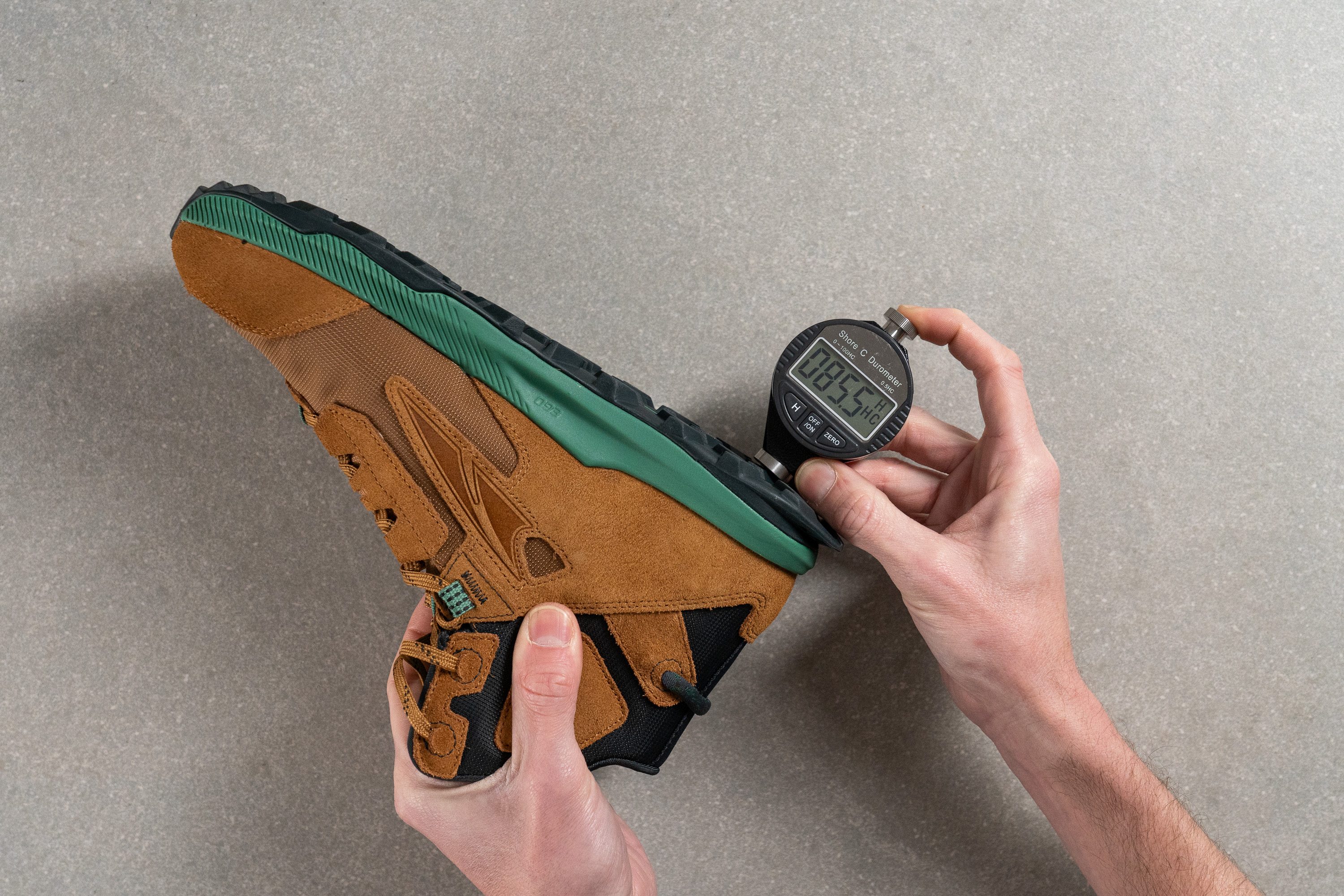
| Lone Peak Hiker 2 | 85.5 HC |
| Average | 87.1 HC |
Outsole durability
This time spinning at 10K RPM, we set the Dremel against one of the lugs which immediately kicked up a flurry of rubber particles. Not a promising sign.
After twenty-two seconds of grinding, we measured the indentation left behind with a tire tread gauge and found that 1.2 mm of material was lost to the test. This makes the Lone Peak Hiker 2's outsole less durable than the average hiking boot which loses less under similar circumstances. This further confirms that this boot isn't well-suited for harsh, gravelly trails which will erode the lugs at a much faster rate than softer dirt trails. The Adidas Terrex Free Hiker 2 sports a much more durable outsole with a similarly light trail shoe-esque frame.
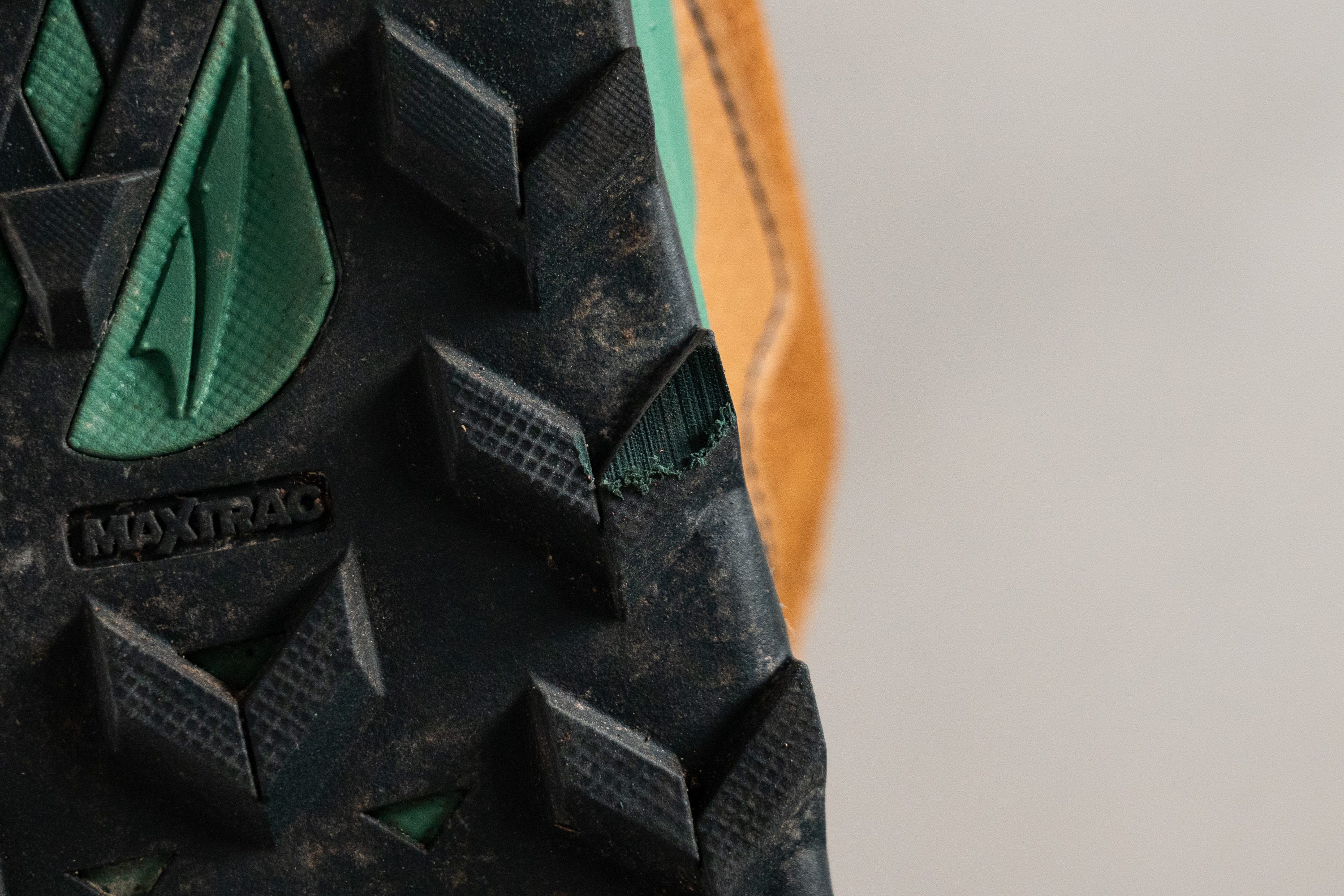
| Lone Peak Hiker 2 | 1.2 mm |
| Average | 0.8 mm |
Outsole thickness
The Lone Peak Hiker 2's outsole boasts less rubber than average at only 2.1 mm thick according to our caliper measurements. While this doesn't do the boot any favors in terms of durability, it does contribute to its lightweight frame.
| Lone Peak Hiker 2 | 2.1 mm |
| Average | 2.9 mm |
Misc
Insole thickness
We measured the insole to be 7.4 mm thick which is quite a bit thicker than our current lab average. This provided us with great arch support and a cushy footbed to sink into that really elevated our levels of comfort while testing this boot.
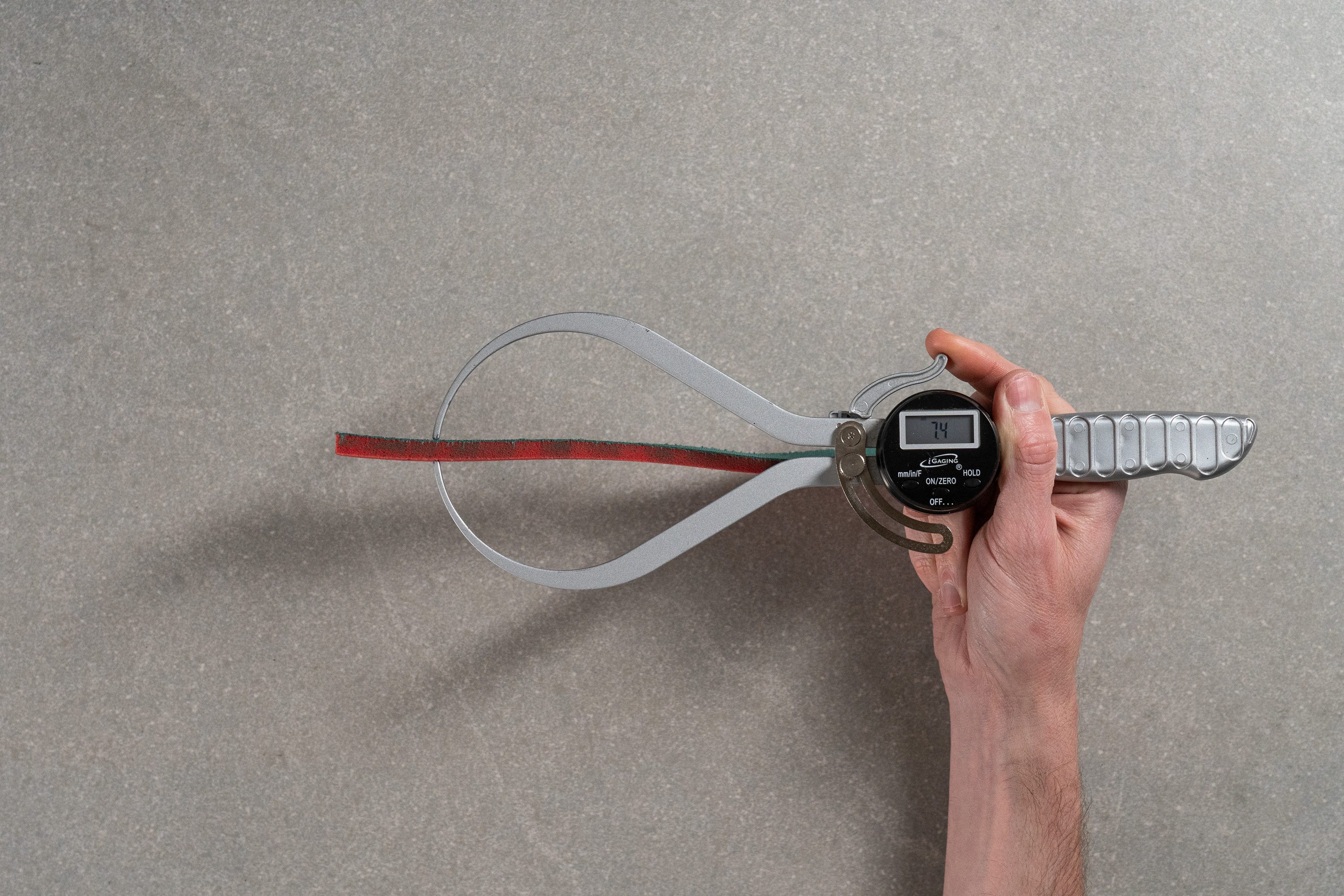
| Lone Peak Hiker 2 | 7.4 mm |
| Average | 6.0 mm |
Removable insole
The Lone Peak Hiker 2's insole isn't glued in so it can easily be replaced with a custom orthotic if necessary.
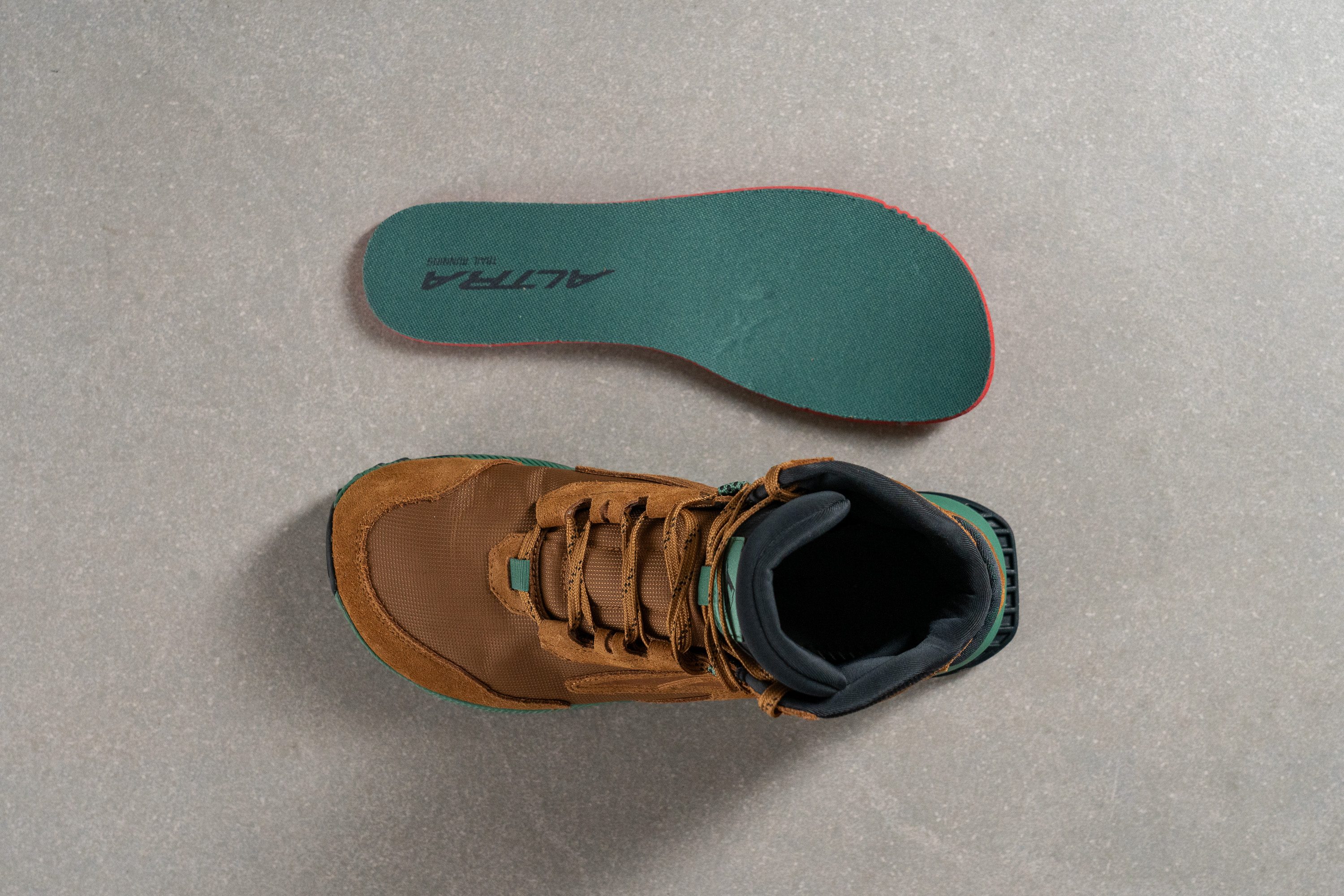
| Lone Peak Hiker 2 | Yes |
Midsole softness in cold (%)
We placed the Lone Peak Hiker 2 in our freezer for twenty minutes to see the effects of cold conditions on the midsole. Once appropriately chilled, we pressed our durometer against it once more and got a much softer-than-average reading of 25.3 HA. This 14.8% increase in firmness means that the Lone Peak Hiker 2 performs very consistently no matter how frosty it gets and will provide balanced cushioning all year round.
| Lone Peak Hiker 2 | 15% |
| Average | 20% |
Reflective elements
The Lone Peak Hiker 2 doesn't feature any reflective elements, so we don't recommend walking along dimly lit roads at night without additional high-vis gear.
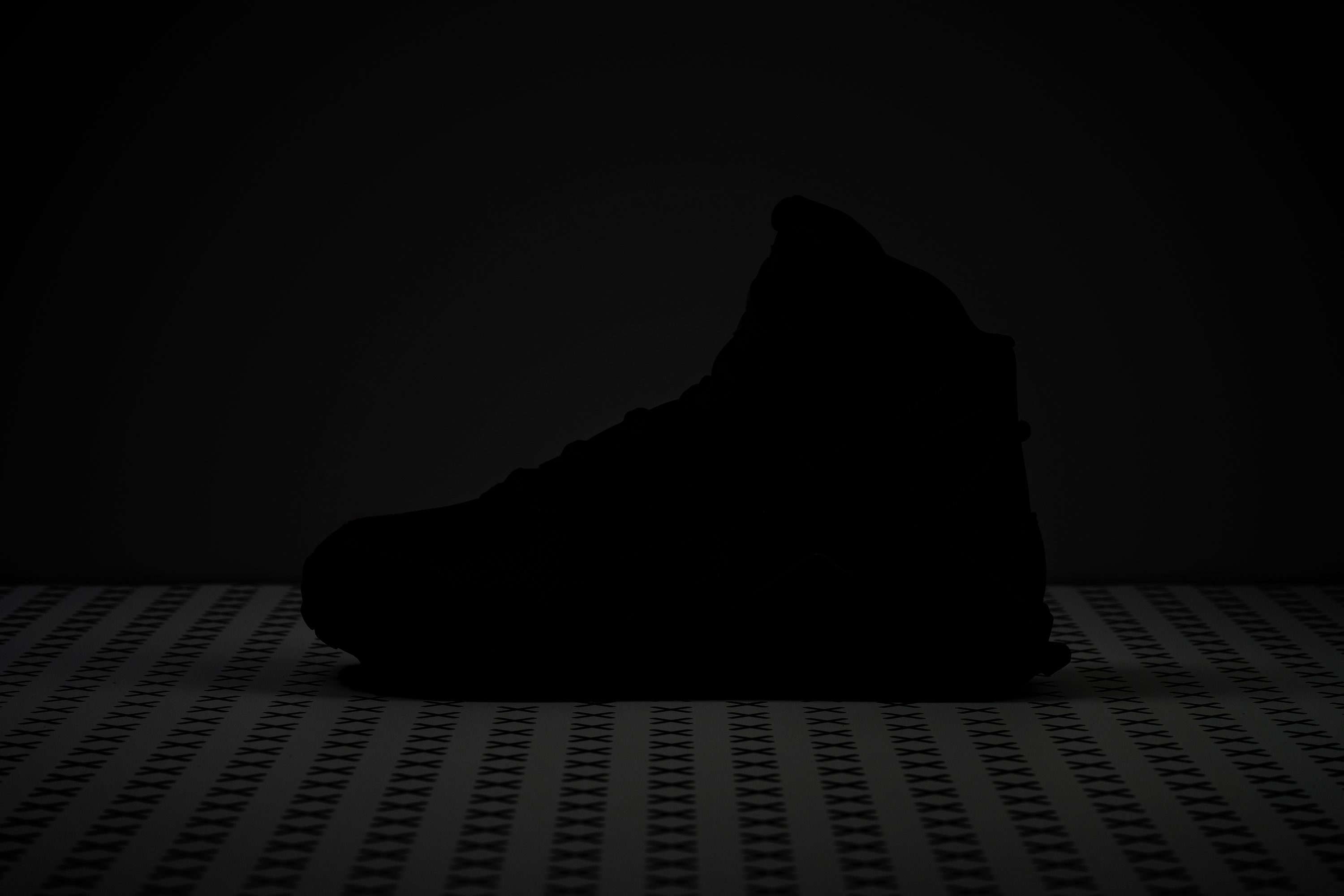
| Lone Peak Hiker 2 | No |
Tongue padding
At 9 mm thick according to our caliper measurements, the Lone Peak Hiker 2's tongue is slightly less padded than our current lab average. It's still cushy enough to feel incredibly comfortable across the instep and effectively protects us from lace bite while testing this boot.
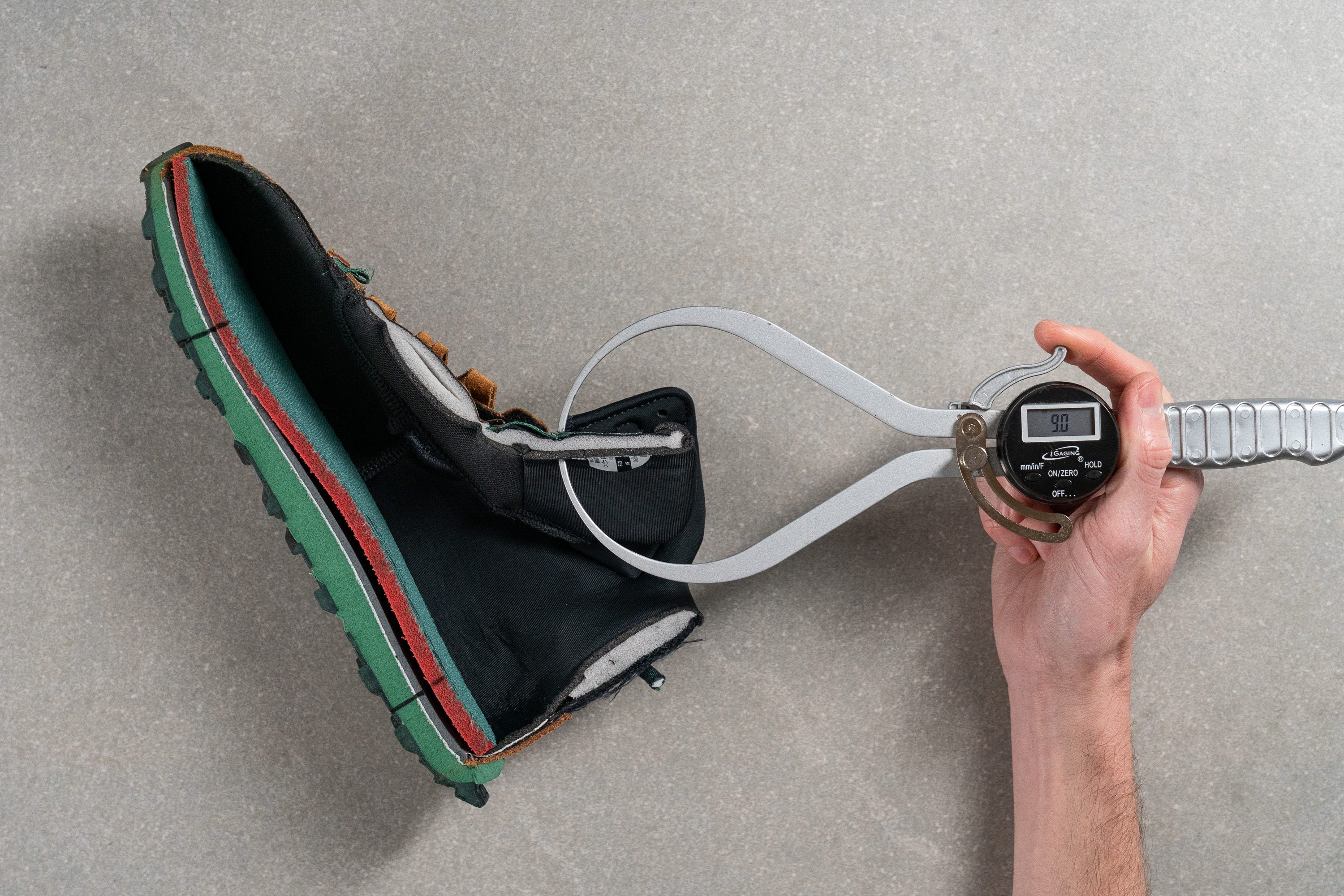
| Lone Peak Hiker 2 | 9.0 mm |
| Average | 11.2 mm |
Tongue: gusset type
Unlike many other hiking boots we've tested so far, the Lone Peak Hiker 2's tongue is only semi-gusseted. While this might help in shaving off a few grams from the overall weight, it does mean that little bits of grit and debris did occasionally make their way into the boot during our test hikes.
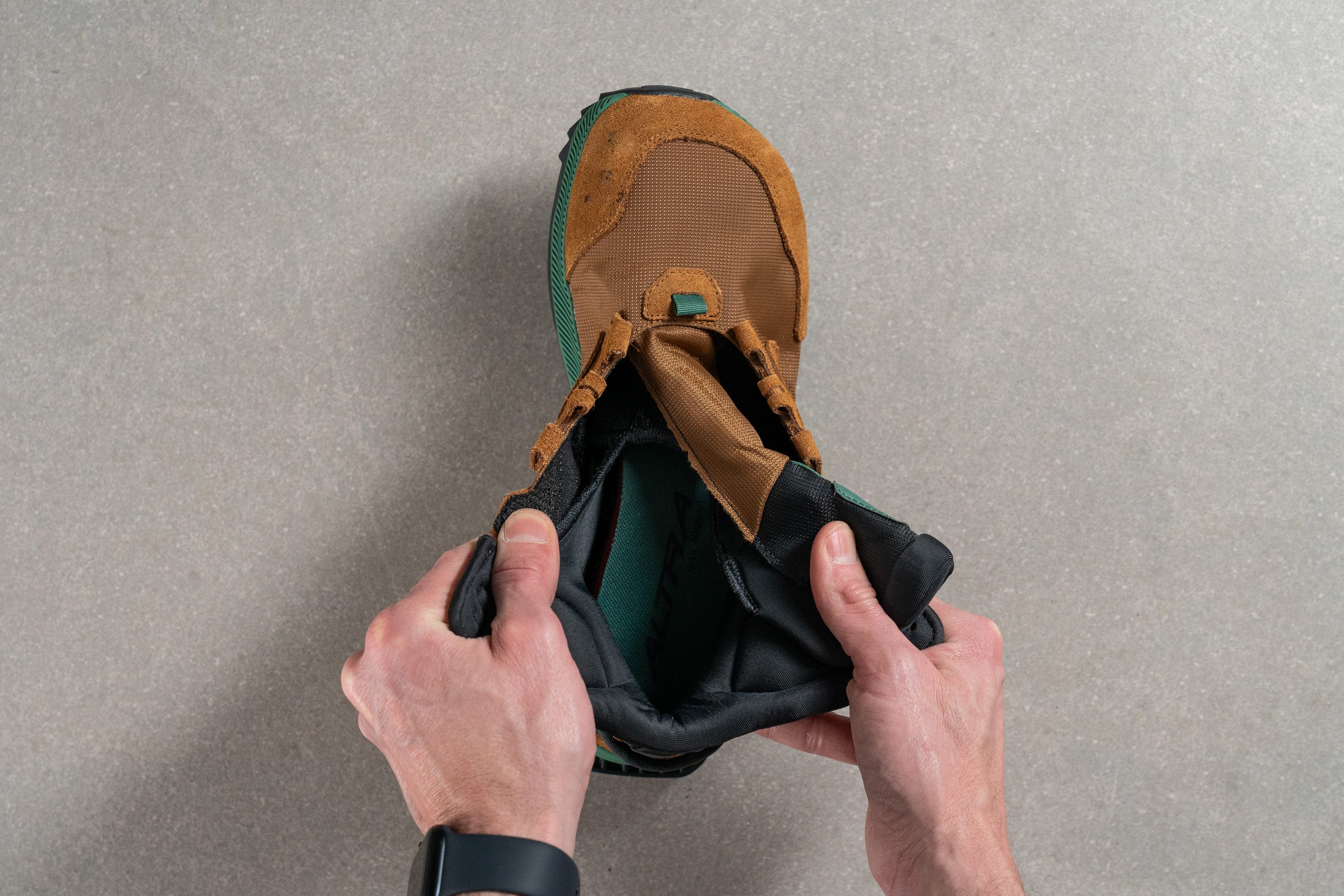
| Lone Peak Hiker 2 | Both sides (semi) |
Heel tab
There's a cord-like finger loop at the heel of the Lone Peak Hiker 2 to help pull the boot on.
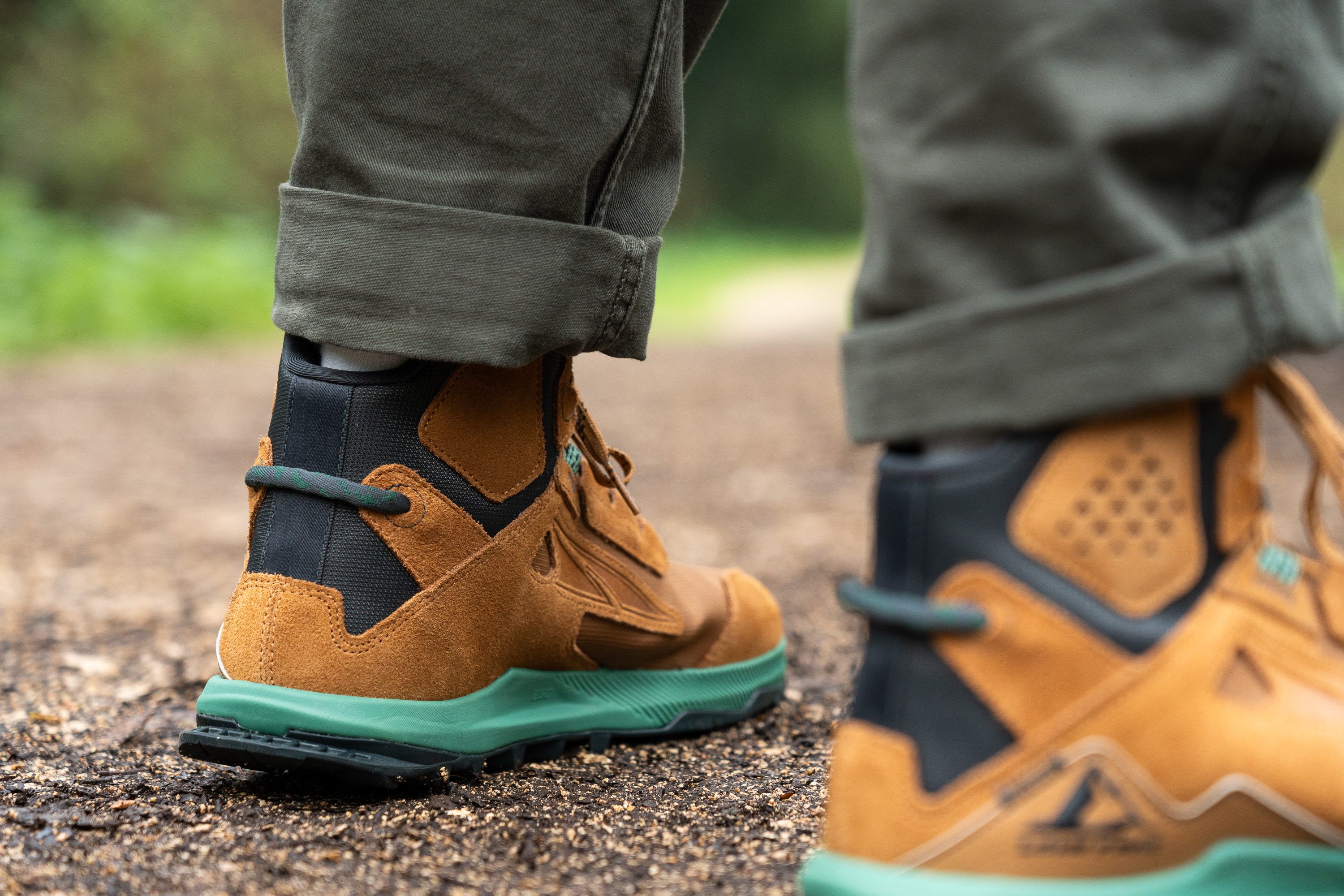
However, despite this feature, we still found the boot difficult to squeeze into without loosening up the laces significantly.
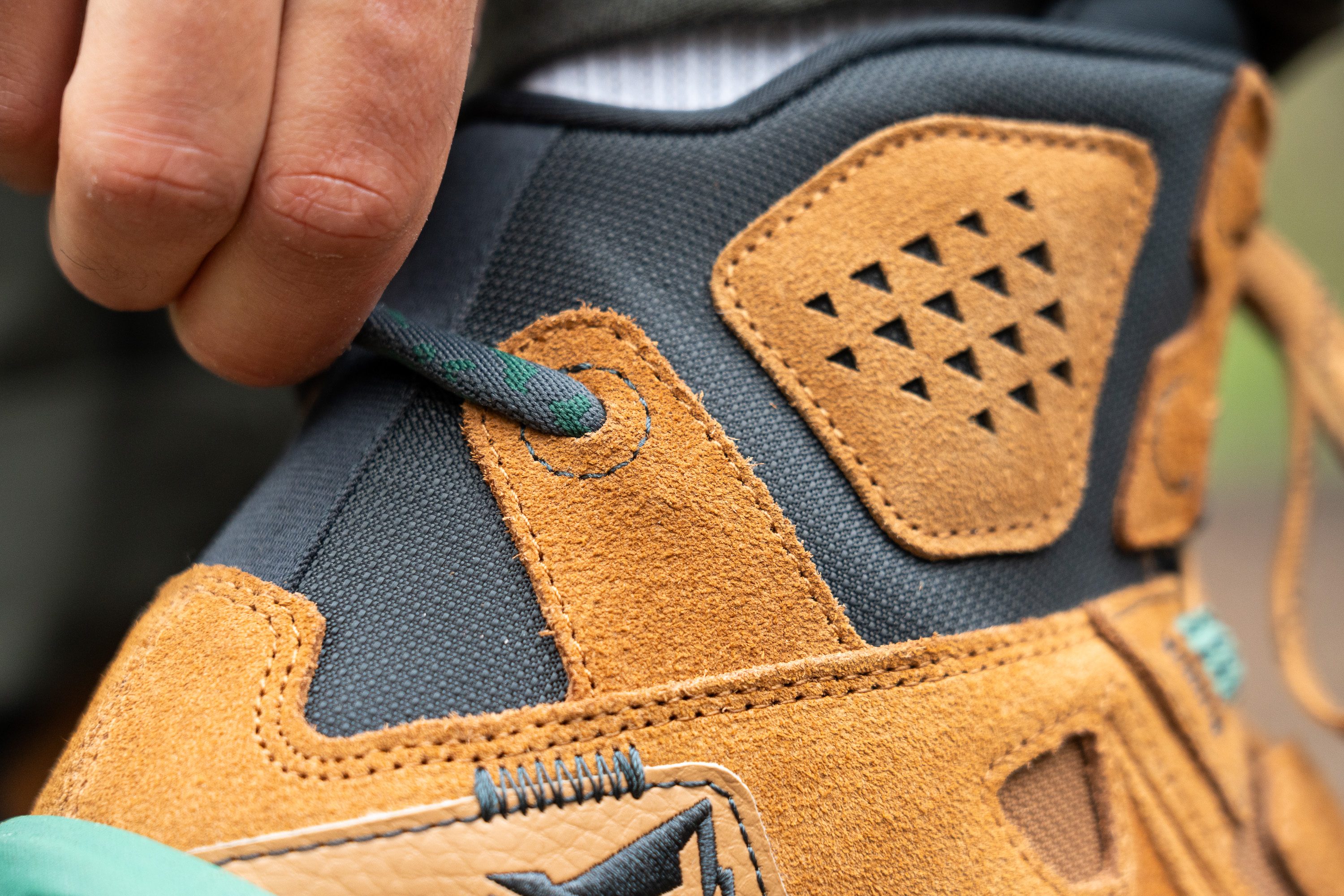
| Lone Peak Hiker 2 | Finger loop |

